- Skip to primary navigation
- Skip to main content
- Skip to footer

(866) 300-5984 [email protected]

U.S. Coast Guard Captain’s License Requirements
U.s. coast guard requirements for national oupv or master up to 100 tons.
A Captain’s License is required to operate a commercial vessel or to take paying passengers out on your vessel. Understanding the Captain’s License Requirements is important prior to taking a captain’s license course . The prerequisites should be reviewed before applying for any U.S. Coast Guard credential. This is advised so you don’t spend your time and money pursuing a license that you don’t qualify for. For helpful credential information and application packets, and official forms click here . For Maritime Institute’s fee-based credential services, click here to get more info.
Prerequisites for Operator of Uninspected Passenger Vessels (OUPV/”6-Pack”)
The National OUPV license is limited to uninspected vessels, of less than 100 gross tons, operating on U.S. domestic waters ONLY. Also limited to carrying six or less paying passengers. You must meet all of the requirements established by the USCG National Maritime Center in order to apply for this license. The USCG checklist of requirements is located here on the National Maritime Center website: https://www.dco.uscg.mil/nmc/checklist/ . Under National Officer Endorsements for Deck, click on National OUPV Less Than 100 GRT.
Important sea service requirements for OUPV:
- Must be at least 18 years old.
- Must be able to document 360 days of experience on a vessel, of which at least 90 days must be on Near Coastal/Ocean waters otherwise license will be limited to Inland Waters ONLY. ( See: What Counts as Sea Service )
- 90 days of sea service must be within the last 3 years of when you apply.
- 90 days of sea service must be on Ocean or Near Coastal waters or otherwise the license will be limited to Inland Waters only.
- If you are not a U.S. Citizen, you can apply for this license but it will be limited tonnage and restricted to undocumented vessels.
Prerequisites for Master up to 100 Tons on Inland Waters/Great Lakes
With a Master license you may operate inspected/commercial vessels and also take more than six paying passengers. You must meet all of the requirements established by the USCG National Maritime Center in order to apply for this license. The USCG checklist of requirements is located here on the National Maritime Center website: https://www.dco.uscg.mil/nmc/checklist/ . Under National Officer Endorsements for Deck, click on National Master 100 GL and Inland.
Important sea service requirements for Master Inland/GL:
- Must be at least 19 years old.
- Must be able to document 360 days of experience on a vessel. ( See: What Counts as Sea Service )
- The tonnage of the license (25 Ton, 50 Ton, or 100 Ton) that you get, is determined by your experience. See USCG checklist in the paragraph above for the specific tonnage qualifications .
If you plan on operating an inspected sailing vessel, you must have a sailing endorsement along with the Master Inland/GL license. The required amount of sea service for a sailing endorsement on a Master Inland/GL license is: 180 days on sail or auxiliary sail vessels.
Prerequisites for Master up to 100 Tons on Near Coastal Waters
With a Master license you may operate inspected/commercial vessels and also take more than six paying passengers. You must meet all of the requirements established by the USCG National Maritime Center in order to apply for this license. The USCG checklist of requirements is located here on the National Maritime Center website: https://www.dco.uscg.mil/nmc/checklist/ . Under National Officer Endorsements for Deck, click on National Master 100NC .
- Must be able to document 720 days of experience on a vessel, of which at least 360 days must be on Near Coastal/Ocean waters. ( See: What Counts as Sea Service )
If you plan on operating an inspected sailing vessel, you must have a sailing endorsement along with the Master Near Coastal license. The required amount of sea service for a sailing endorsement on a Master NC license is: 360 days on sail or auxiliary sail vessels.
- Cookie Policy
- Privacy Policy
- Terms of Use
Sign Up For Our E-Newsletter!
Maritime Institute Online Course Portal
Book Examination
Privacy Overview
Log in to maritime institute.

- Home /
- Blog /
- Captain License
- / USCG Captain’s License: Ultimate Guide
USCG Captain’s License: Ultimate Guide
When do you need a captain’s license.
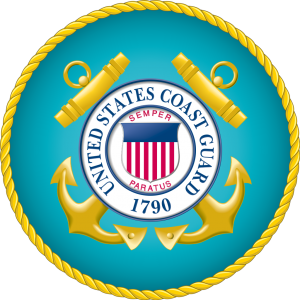
Sometimes, maritime training instructors also need a captain’s license. Another reason you might need a captain’s license is for insurance purposes. Some insurance companies require that the boat has a licensed captain onboard, while others offer discounted rates.
To carry up to six paying passengers on a vessel of up to 100 gross tons you need an Operator of Uninspected Passenger Vessels (OUPV) Captain License – also called a six-pack captain’s license. The 6-pack captain’s license requirements include that you are at least 18 years old. You do not have to be a U.S. citizen, but you have to provide proof of permanent U.S. residency.
If you are intending to carry more than six paying passengers you need a Master Captain’s License – the highest level captain’s license issued by the USCG. The master captain’s license requirements include that you are at least 19 years old and a U.S. citizen.
How to become a boat captain
1. captains license sea time requirements.

Sea service time can be counted from your 16 th birthday. It must be documented on the Small Vessel Sea Service Form , or detailed in a letter, and signed off by the owner/operator/master of the vessel on which you conducted the service. If you did your sea service on more than one vessel, a separate form must be used for each vessel. If you are the owner of the vessel you must present proof of ownership.
Eight hours underway (not moored or anchored) in a 24-hour period counts as one day of sea service on vessels over 100 gross tons. For vessels less than 100 gross tons, no less than four hours underway counts as a day. It is important to identify the waters (inland, great lakes or near coastal) that the vessel was operating on as this will determine the type of captain’s license you qualify for.
USCG captain’s licenses are issued to operate vessels either inland, on great lakes or near coastal. To become a boat captain on great lakes you need at least 90 days sea service time on great lakes. The sea service requirements for operating a vessel near the coast depends on whether you are applying for an OUPV Captain’s License or a Master Captain’s License .
The gross tons of the vessel is also important to document – especially when applying for a Master Captain’s License . Tonnage refers to the volume of the boat and not the weight. If the tonnage of the boat is unknown (check the vessel’s documentation), the length, width and depth can be filled in on the Small Vessel Sea Service Form in order for the USCG to calculate the tonnage. The registration/identification number of the vessel must also be provided or the USCG will not accept the sea service form.

You will be quizzed on the following sections:
- Rules of the Road (you need to correctly answer 90% of 30 questions)
- Navigation General (you need to correctly answer 70% of 30 questions)
- Chart Navigation (you need to correctly answer 70% of 10 questions)
- Deck General and Safety (you need to correctly answer 70% of 60 questions)
- For a master captain’s license : Master 25/50/100 Ton (you need to correctly answer 70% of 70 questions)
You can find up-to-date captain’s license practice test questions, released directly from the U.S. Coast Guard, at USCGQ.com .
3. Additional requirements
- Pass a physical
- Pass a drug test
- Obtain a CPR and basic first aid card
- Request a criminal background and driving record check by applying for a Transportation Workers Identification Credential (TWIC) card at the Department of Homeland Security.
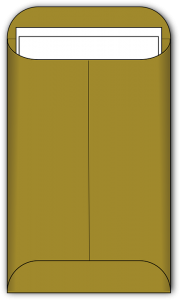
- Merchant Mariner Credential (MMC) Application Form ( CG-719B )
- Copy of Certificate of Training
- Copy of your CPR & First aid card (front and back)
- TWIC application receipt
- Conviction Disclosure Statement (if convicted of anything) ( CG-719C )
- Small Vessel Sea Service Form ( CG-719S )
- Medical Form ( CG-719K )
- DOT/USCG Drug Testing Form ( CG-719P )
- Receipt of payment (you can pay applicable fees at Pay.gov )
You must apply at your USCG regional exam center in person, by mail or electronically. Your application must be accompanied by photo identification.
How much does it cost to get a U.S. Coast Guard captain license?

You need to pay the USCG for the issuance of the Merchant Mariner Credential ($45) and for processing the license application ($100). If you are undertaking the examination at a USCG exam center (and not with an approved course provider) you also need to pay the examination fee ($95).
But it doesn’t end there. You need to pay the TWIC enrollment fee; for the physical exam and drug screening; and for First Aid/CPR Training.
A good tip is to submit your application to the USCG before enrolling in a course. Once the application is approved by the USCG, in terms of the required documentation, you will receive a notification indicating “Approval to Test (ATT)”. That way you can be sure your application will be approved before paying course tuition fees.
Also see USCG captain’s license renewal requirements, upgrade requirements and endorsements .
USCG License Upgrade
USCG License Renewal
USCG Captain’s License Endorsements
Merchant Mariner Credential (MMC)
USCG Master Captain’s License
USCG OUPV (Six-Pack) Captain’s License
Click Here to Leave a Comment Below
Leave a Comment:

How to Get Your Captain’s License –A Step-by-Step Guide
From captain requirements to the coast guard application process – how to navigate the process of becoming an official boat captain.
Like all other areas of professional endeavor, getting a Captain’s license is an essential and non-trivial process. Despite the years between my earliest thoughts on having one and actually applying…or perhaps because of that time…I am quite proud to call myself Captain !
From the time I was Quartermaster aboard the Chesapeake Lightship back when she was berthed in Washington, DC, I had wanted to get my Captain’s license. We in her crew had plenty of sea time. The late Capt. Joe Murray, John Hart, and particularly Chris Krusa saw to it that each of us developed our skills and knowledge beyond the minimum that we needed for our jobs. We met collectively with a Coast Guard officer to explore the options for us all getting licensed; however, the wind was taken out of our sails so to speak when he told us that since most of us were not 18, we were not entitled to take the written exam.
I left that session crestfallen but I put it all behind me as I moved on with a career in research physics. Later, I learned that what the officer SHOULD have said is that if we had just waited (a few months) until we turned 18, we could have taken the exams. Years later, my problem was that I could not meet the requirement to have 90 days of sea time in the last 3 years. My employer would have more than frowned on my having been gone so often. And all of us had not even bothered to ask for sea service forms or letters to document our time on the Chesapeake.
Fast forward 34 years and serendipitous events led to my being able to get signed sea service forms for my time on the Lightship. Shortly thereafter, I became a boat owner WITH vacation time afforded to a very senior engineer in the company.
Long story short, I am Capt. Rob Chichester – 200 Ton Master with Auxiliary Sail and Assistance Towing Endorsements.
Navigating the path to a Captain’s license can be full of the brambles of regulations, forms, and oddly worded requirements. In this article, I will try to clarify the process and help interested skippers decide what type of license, scope, and tonnage they should pursue. Then I will discuss the application process and all the elements needed to assemble a successful license application package.
More Resources: If you would like a one-on-one consultation to have your specific questions answered on this topic or others related to boating, please sign up for 30 minute video consultation with me!
The Basics of a Captain’s License
A first time applicant will need to decide while type of license to pursue. There are two types available to one applying for a new license.
- You may apply for a license to be an Operator of Uninspected Passenger Vessel (OUPV) or the more familiar “Six Pack” license. It is so called because the holder of this license is limited to carrying no more than 6 paying passengers on any vessel within his tonnage rating regardless of the maximum capacity rating for the vessel.
- The other option is a Master’s license which allows you to carry up to the maximum number of passengers indicated for the vessel in question. Whereas a Master’s license requires US Citizenship, an OUPV license holder can be non-US citizen. Clearly holding a Master’s license offers more opportunities; however as I will explain later, the knowledge requirements are appropriately greater.
The scope or route for one’s license is the waters in which you are authorized to function in your licensed capacity.
There are effectively three such areas defined:
- The first is Inland which covers all inland rivers and bays not otherwise outside the demarcation line for the high seas. This may also include portions of the Great Lakes up to the International boundary line. (I will not explicitly discuss the Great Lakes or Western Rivers in this article but those waters are also covered by an Inland scope with a specific endorsement for each.)
- The second route is near-coastal which means ocean waters not more than 200 miles offshore. By extension, a near-coastal route endorsement includes inland waters as well.
- Lastly, Oceans refers to all waters seaward of the Boundary Lines as described in 46 Code of Federal Regulations (CFR) Part 7.
Tonnage rating is determined by the size vessels upon which an applicant has served. The tonnage is not simply the weight or displacement of a given vessel. It is not how much stuff you had loaded on a boat. It is a calculation of theoretical displacement if the complete available interior volume of a ship were filled with material of density 1 (i.e., water).
There are formulas available to estimate that based on the dimensions and type of boat. The calculations are necessarily different for a sailboat and a power boat. On a very rough order of magnitude, a 100 Ton powerboat would be about 80 feet long and a 100 Ton sailboat would be about 100 feet long. The tonnage rating is a not to exceed limitation.
One need not necessarily serve on a 50 ton or 100 ton vessel to earn the equivalent tonnage rating (see the table below for specifics on that). One cannot be granted more than a 100 Ton rating on an initial license because higher tonnage requires that one has served in a licensed capacity before applying for the higher tonnage. When I renewed my license in November, I applied for a 200 Ton rating which was granted conditional to my successfully passing the mandated written test. By the time you read this, I expect to have taken that exam.
Tonnage and route are determined by one’s documented experience. While you may apply for a 100 ton rating, you may only be granted 50 tons (or less) if your experience does not justify the higher rating. Additionally, the greater the scope, the more sea time is required to qualify for the rating.
For example, while an Inland scope needs 360 days of total sea time with 90 days in the last 3 years, a near-coastal scope requires 720 days and again the 90-day recency requirement. The take-away here is that experience is a big determinant and should NOT be discounted in any way. Note that there is no path to being granted an Ocean scope except by being a licensed mate or master for at least 2 years with documented service on those waters. That is, it is impossible to apply for an Oceans scope on a first application.
It should be noted that an OUPV license is automatically issued with a 100 Ton rating. As coarse as this may sound, the reason is that it is assumed that with an OUPV license, the most damage one can do is to 6 people. Therefore, there is no particular benefit to issuing OUPV with varying tonnage ratings. New Master’s licenses are issued with ratings of 25, 50, or 100 tons. Discussions of ratings over 100 tons or Ocean routes are beyond the scope of this article. You may contact the author if you wish more information on those specific topics.
The table below is a guide to determining for what rating one may qualify.
Your Sea Time Experience
For a Near Coastal route, ideally, all of your time will be on Near-Coastal waters; however, you are allowed to substitute up to half of the 720 days required minimum with Inland route service. For the purposes of documenting sea time for a Near Coastal route, any time served beyond the 3-mile limit counts for that purpose. So if you charter in the Caribbean or crew on an offshore fishing trip, that time counts.
Just to be clear, sea time is not counted unless you are a working member of the crew of the vessel named on the sea service form. That is to say, just being a passenger is not sufficient.
To keep things on the up and up, the applicant is required to get the signature of the owner, manager, or master of the vessel on the sea service form. If the applicant owns the identified vessel, proof of ownership must accompany the form. Proof might be a Bill of Sale, vessel document, or a state registration.
Sea time is not counted unless you spend at least 4 hours of a given day underway . Being onboard the boat at the dock swabbing the decks does not count. Time underway is counted whether it is in route or adrift. Being anchored or moored also does not count. It can be tedious to collect and collate all of your sea service forms, especially after the fact. My best advice is even if you are only thinking about getting a license, keep blank sea service forms with you for the vessel operator to sign at the end of a trip. Note that the forms are not per trip but per vessel. There is room to document up to 5 years of sea time on any given vessel. There is room for five years of data because your license will be up for renewal every 5 years .
Technically, vessels over 200 gross tons now require a Service Letter from the employer or vessel manager. However at the time I applied for my original license, I submitted my time on the Chesapeake Lightship on a Sea Service form (CG-719S). That form was accepted for that as well as again when I renewed and requested an upgrade to 200 Tons. I may have been grandfathered so new applicants should verify their individual situations with the National Maritime Center .
Health and Medical
To be a Captain, one must be in good health and of reasonable physical ability. The Medical form ( CG-719K ) is the most extensive form one will need to complete. It also requires the signature of a licensed physician. Unlike an FAA pilot’s license, the physician need not be approved by the US Coast Guard. Your family doctor is acceptable.
For my part, I completed as much of the form as was reasonable. I then FAXed the form ahead of my annual physical so that the doctor could review what was needed and to be prepared to sign off on it. The only extra thing the doctor had to do was conduct color vision and standard wall chart vision test. Your vision need not be perfect without glasses but if that is the case, you should expect a requirement to be written on your license requiring corrective lenses to be used and a spare pair to be available when on duty. If your medical form is accepted, you will be issued a separate medical form which is to be kept with your Merchant Mariner Credential. There is a pocket on the back cover to hold it and the required Transport Worker’s Identification Card ( TWIC ). The TWIC will be addressed below.
Another form to be completed, this time by an authorized physician, is the DOT five-panel drug test . An applicant must submit proof of drug testing with no findings as determined by an authorized physician. Also be aware that to work aboard any vessel in any compensated capacity, you must have proof of participation in a drug test program, whether it be one in which you elect to participate as an individual or one required by your marine employer. Such proof is to be carried with you at all times just as your license and medical certificate must be. It is generally in the form of a letter attesting to your compliance and passing a test within 12 months of the date of the letter.
Criminal and National Security Background
One has always been required to agree to a criminal background and driving record check . As you can well imagine, adverse findings in either of these areas will negatively affect one’s application.
With the creation of the Department of Homeland Security (DHS), a requirement was added that licensed mariners have a TWIC card . In fact, anyone working in the transportation sector (air, rail, marine, trucking, etc.) is required to have a TWIC card. You will be investigated for any evidence of threat potential to national security. This is because as a licensed Captain, you may have access to vital and strategic marine facilities.
The TWIC card is issued by DHS through a federal contractor. There is an application to complete and a fee to pay. Furthermore, you must appear in person so that your photo and fingerprints can be taken. This bio-metric data is stored on the TWIC card and protected by a pass code. You must submit a copy of your TWIC with your license application; therefore, one must start the TWIC process at least four to six weeks or more before submitting one’s license application.
Separately, a photograph of the applicant must accompany the application. This can be a driver’s license or passport photo . It should be a state or federal government issued document. Others may be accepted but the applicant should verify this with the NMC before submitting the application to avoid processing delays.
- Coastal Navigation
- Deck General Knowledge
- Rules of the Road
Deck General includes a wide variety of topics including fire and safety, terminology, and laws and procedures. Rules of the Road covers exactly what it says. Bear in mind that even if you are applying for an Inland or Near Coastal license, the Rules of the Road test will include elements of International Rules. So when you are studying, do not neglect to familiarize yourself with those details. There are some variations in vessel precedence, sound signals, and lights and shapes displayed by vessels.
If you are applying for a Master’s license, there are additional areas of test. The same is true if you are additionally requesting an endorsement for Sail, Auxiliary Sail, or Commercial Assistance Towing. The net effect is more questions overall.
You must score at least 70% in all areas except Rules of the Road for which you must have a minimum score of 90% to pass . Generally, that means you may miss no more than 3 questions to pass with a 90% grade. The Navigation questions will require you to work with a chart to plot position, routes, and so forth.
You may either pay an examination fee to take the exams administered by the Coast Guard or you may enroll in any number of approved Captains’ courses. You will receive a certificate of completion from the school to submit with your application in lieu of the Coast Guard exams; however, you will still take exams which include questions from the same list of questions that the Coast Guard uses. In the latter case, you will not need to pay an examination fee but obviously, you will have to pay a tuition for the course.
Completing your Application
The license application is not unlike many others. It is actually shorter than the medical form discussed earlier. There are two things to note on the application:
- Item 1 of Section IV describes how one may be asked to serve on behalf of the country in times of national emergency. An example of this was the massive sealift conducted in support of the first Gulf war in the 1980’s, Operation Desert Storm. This is a voluntary action. However it should be noted that during the call up for Desert Storm, more mariners were needed than responded. It is a possibility, particularly in these times, that another such national emergency could arise.
- Secondly, Item 5 of Section IV contains an oath to which an applicant must swear. If you present yourself in person you will be sworn in by Coast Guard personnel. If you choose to submit your application by mail or electronic means, you must provide proof that you appropriately took the oath as written. This generally means being sworn by a Notary or a local government official such as a county clerk.
Payment of all required application and examination fees is made online prior to submitting the application. You will receive a receipt which you should include with your application package. Pay close attention to the various fees and be sure you select all that apply but ONLY those that apply. An error either way will delay processing of your application.
Submitting your Application
When you apply for an original license and especially if you plan to take the Coast Guard exams , you will need to present yourself in person with your complete application package at a USCG Regional Examination Center (REC). Photo ID will be necessary as well.
One thing that happens if you appear in person is that you will raise your right hand and take the oath on the application. That was a very moving moment for me. Delivering your application package in person also allows you to interact with the personnel directly which could be very valuable if there are errors or omissions in your application package.
If you are not taking the Coast Guard exams and if you have been sworn by an authorized official, you may wish to submit your application by mail or electronically. Be aware that electronic submission has a limit on the size of the email attachment. My applications have always been larger than what is accepted by the Coast Guard mail servers.
Waiting for Your License
The Coast Guard has implemented a very good system of tracking your application and providing feedback at every step of the way. You will receive emails as the application moves through the system. It may take up to a week for the REC to review and forward your application to the National Maritime Center (NMC) in West Virginia. That was my experience with the New York City REC. It may be less in smaller, less congested venues.
By the way, you are not required to use the REC nearest to you. If you wanted to fly to Hawaii or Alaska instead of driving into Baltimore, you may do so. A good friend of mine drove from New Jersey to Boston to submit his application there because he heard the processing times were less than for New York.
Once the NMC has your package, the process usually will not take long at all. It is very likely you will receive 2 or 3 emails a day, often within minutes, as the application moves through the various approvals. Nothing beats the feeling you will have when you get the final email saying that you have been approved and your credential is being printed!
My original license took slightly more than two weeks from dropping off my application at Battery Park in New York to finding my MMC in my mailbox.
Once you get your license, look it over thoroughly. You may not necessarily have been granted the scope and rating you requested. Sometimes that reduction will be legitimate. Other times, it may be due to an honest mistake. Both my original and renewals had honest omissions. I was only granted a 50 ton rating on my original license when I had applied for 100 tons. I submitted the sea service form supporting the request for 100 tons after the fact and I received an endorsement sticker for the 100 ton rating a week later. Similarly with my renewal, I asked for an upgrade to 200 tons. My renewal was approved at 100 tons. When I contacted the NMC, they amended the approval and showed that I was then approved to take the required test for the 200 ton upgrade. So my message here is to not necessarily accept the delivered MMC as if it were carved in stone.
More Resources from Captain Rob
Being a licensed Captain is a great source of pride to me. I have enjoyed working with my clients as well as pursuing other commercial opportunities like relief captain jobs on various schooners, water taxi and tow boat jobs, and tour boat and ferry captain work. I look forward to many years of working on and enjoying the water.
If you would like a one-on-one consultation to have your specific questions answered on this topic or others related to boating, please sign up for 30 minute video consultation with me!

Recommended Reading
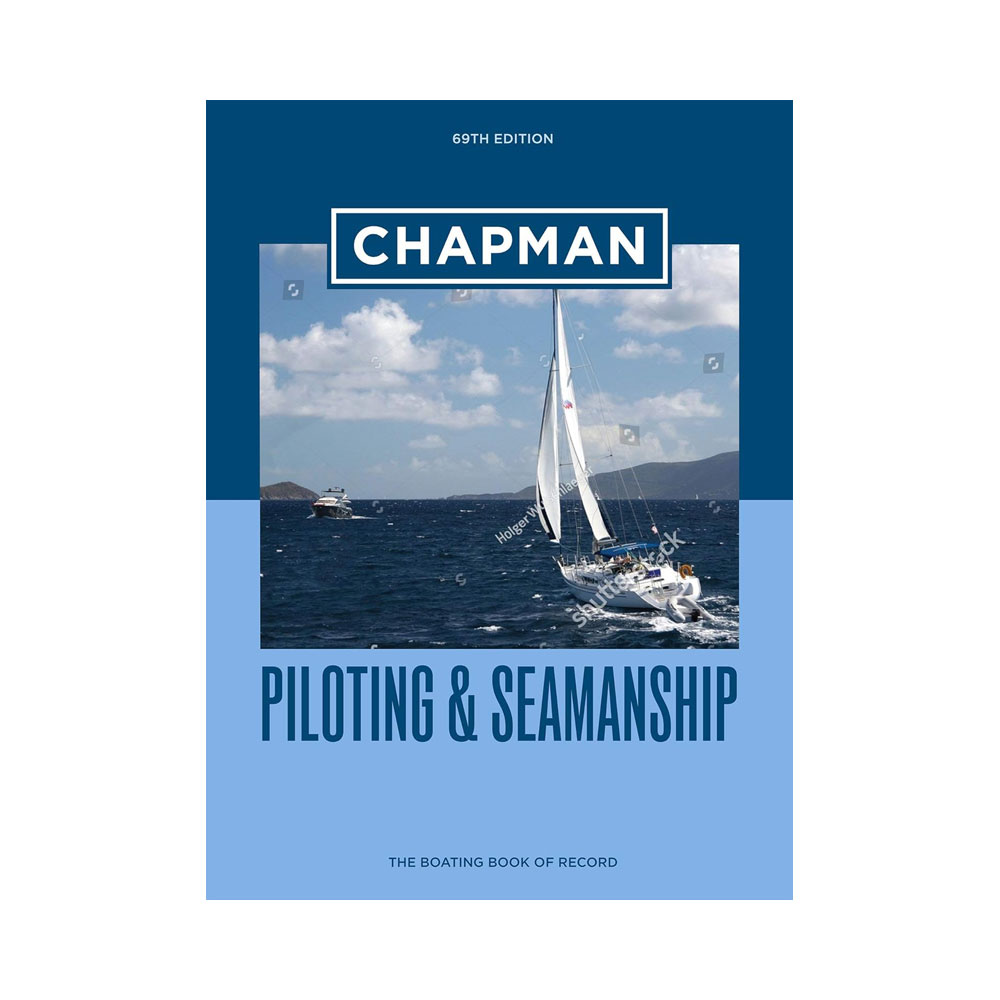
Chapman Piloting & Seamanship 69th Edition
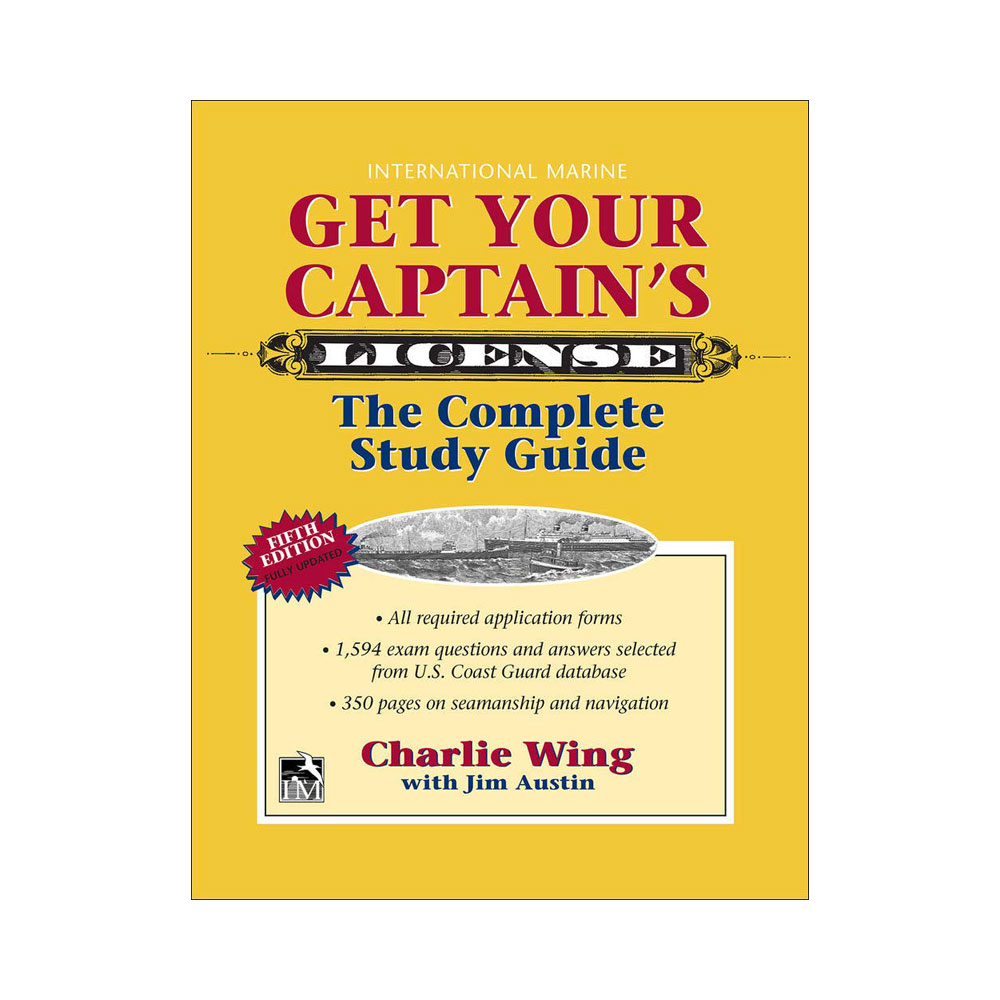
Get Your Captain’s License Study Guide
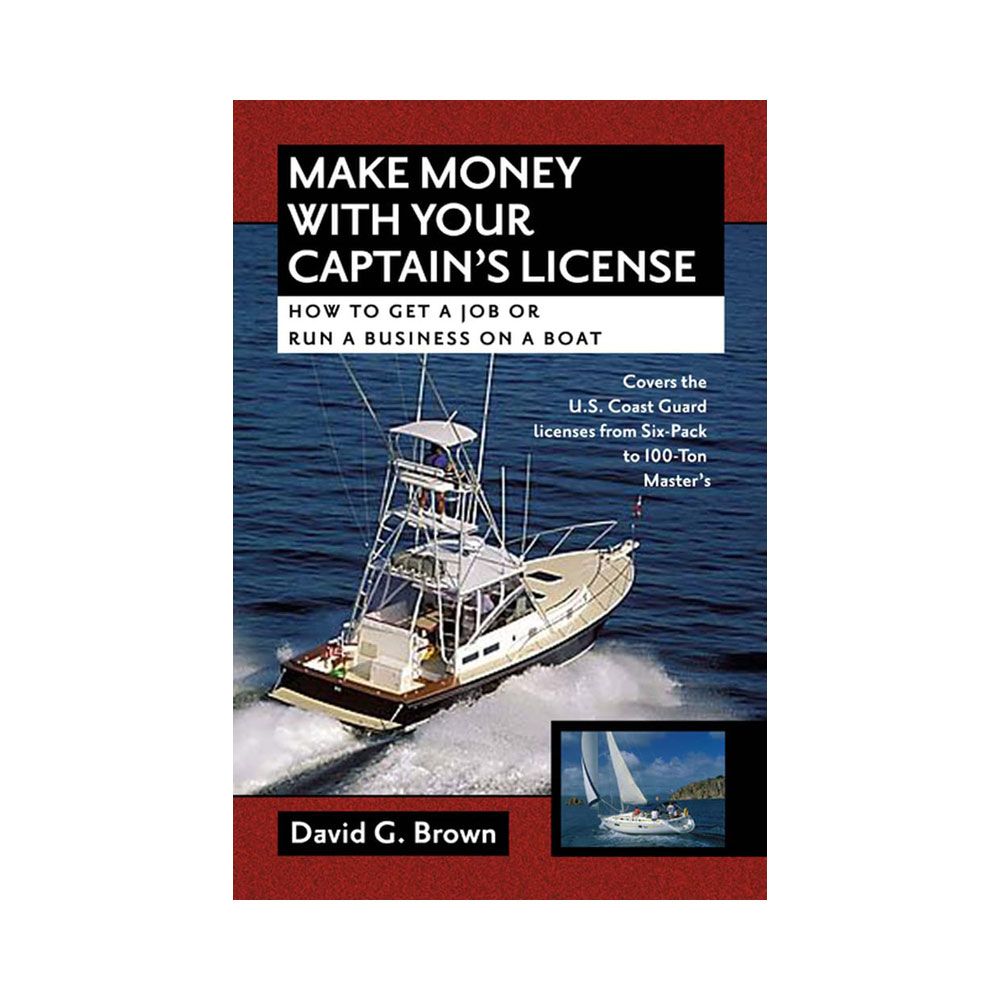
Make Money With Your Captain’s License Book
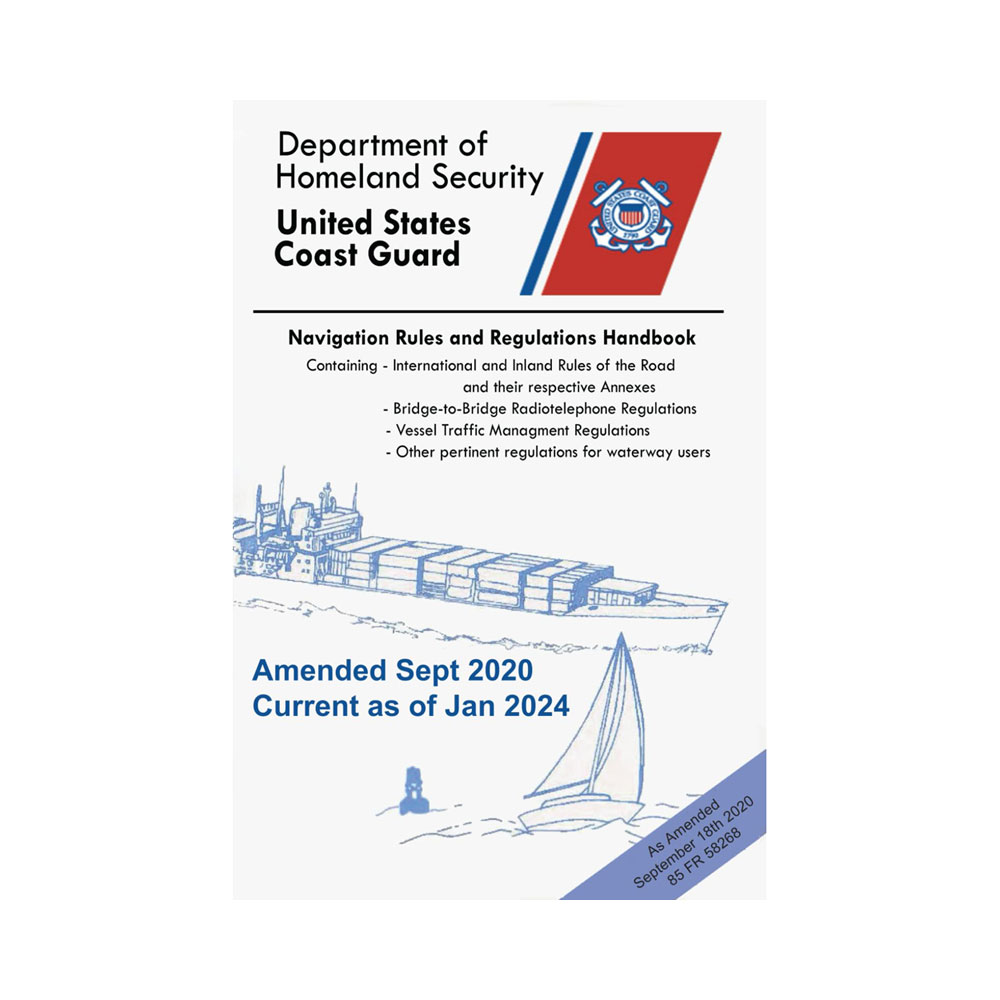
USCG Navigation Rules And Regulations Handbook
Love the boat life check out these picks for your boating lifestyle:.
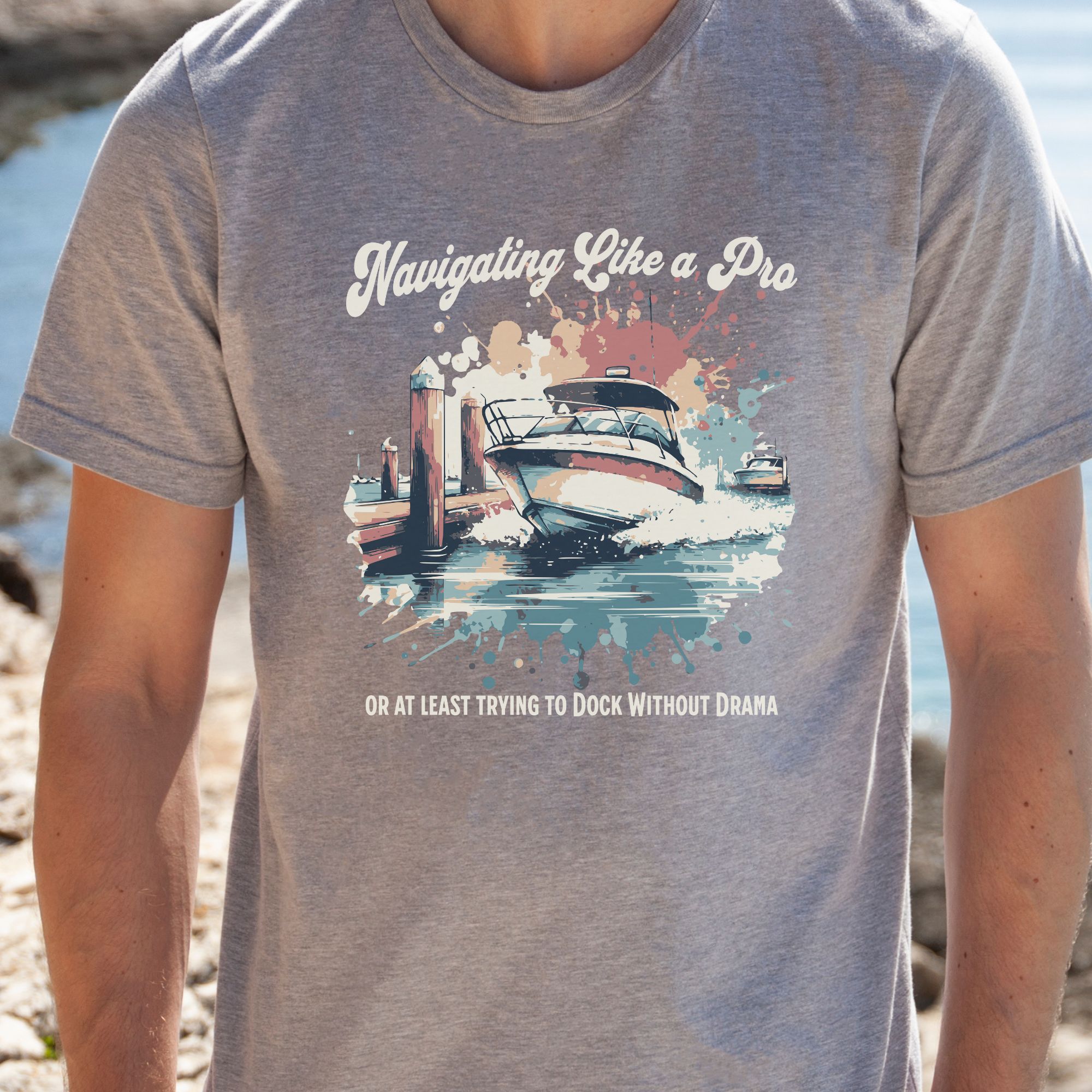
Navigating Like a Pro Boating Shirt

Life is Better on My Boat Sweatshirt
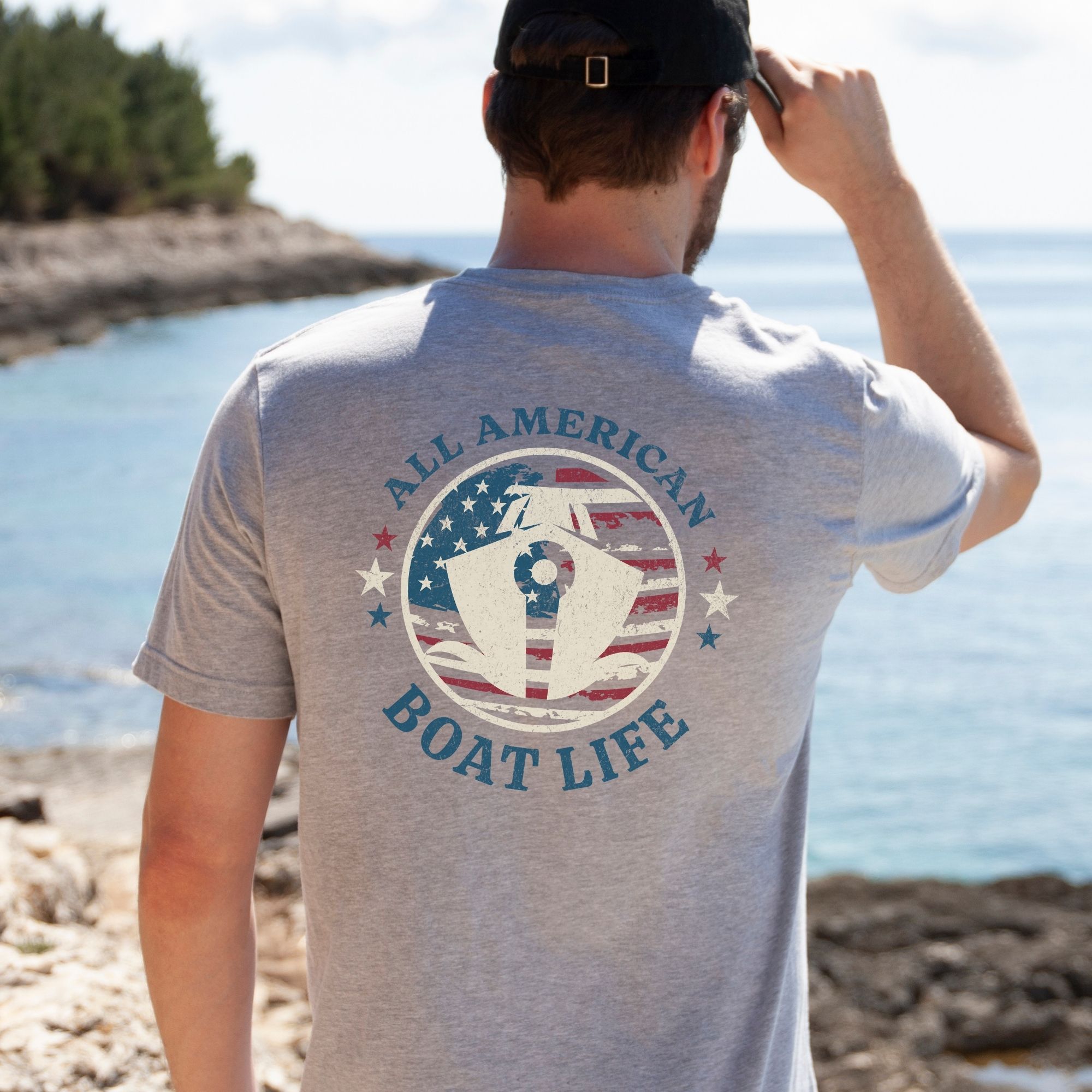
All American Boat Life T-Shirt
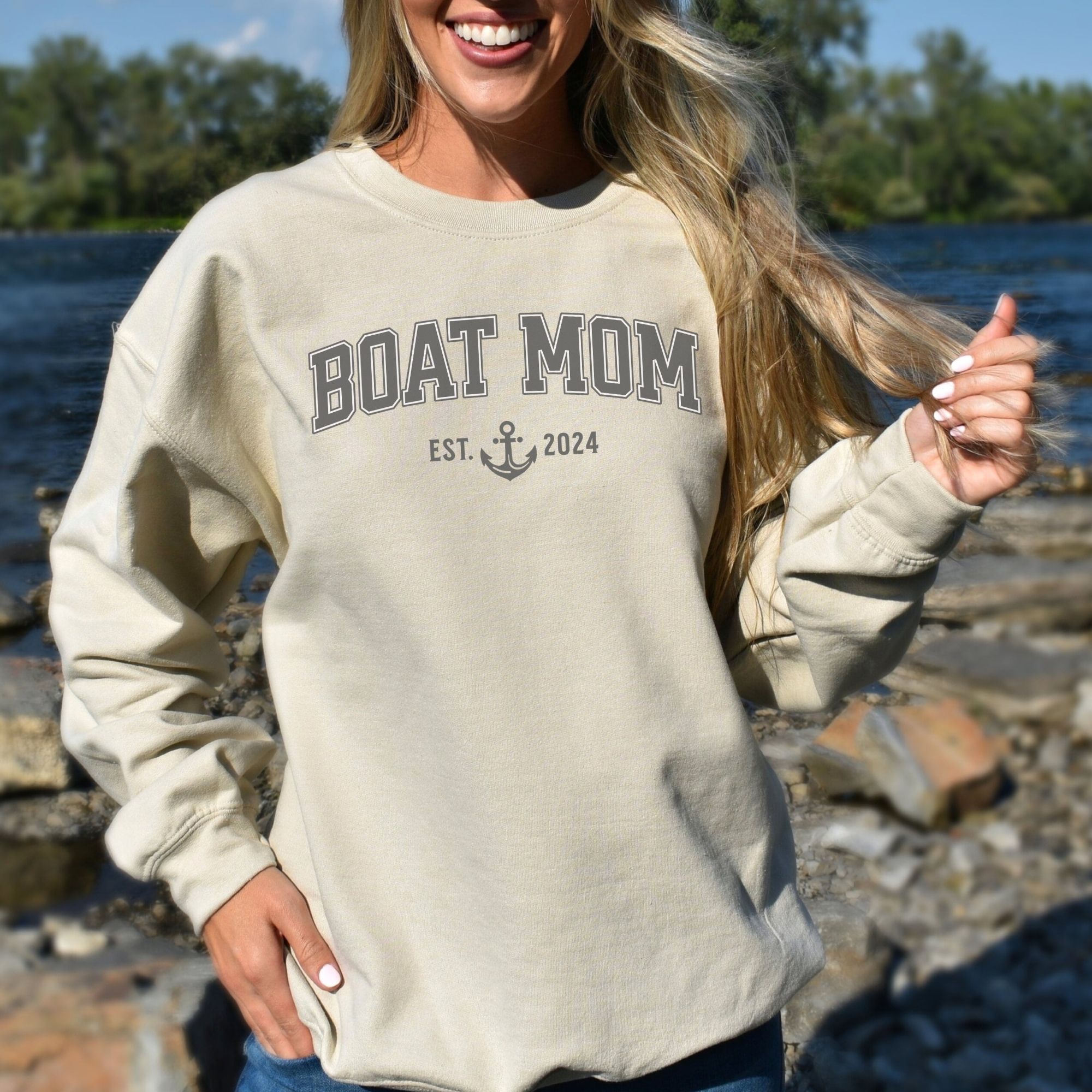
Custom Boat Mom Sweatshirt

Capt. Rob Chichester
Related posts.
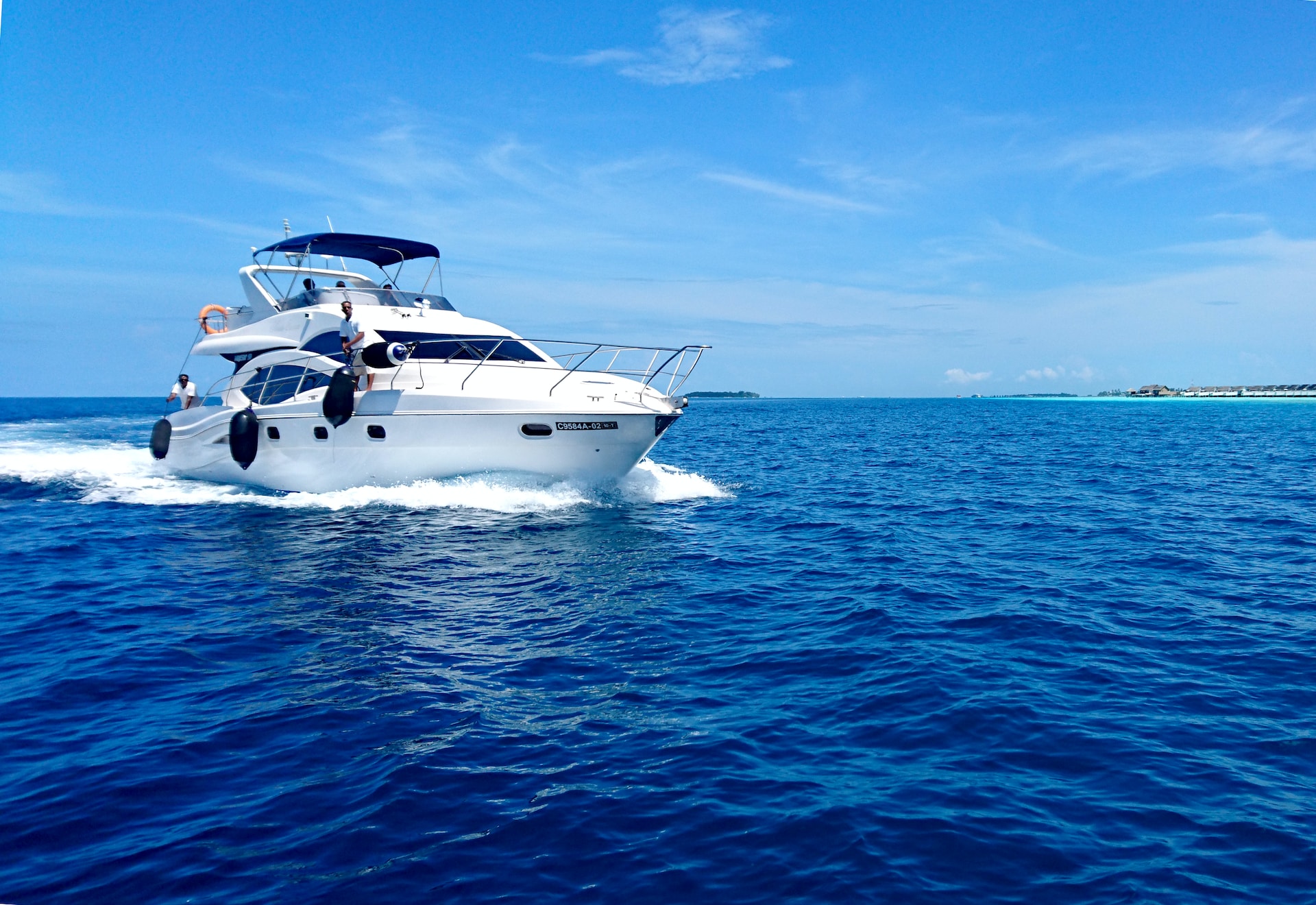
Can I Drive My Yacht Anywhere In The World?
May 11, 2023
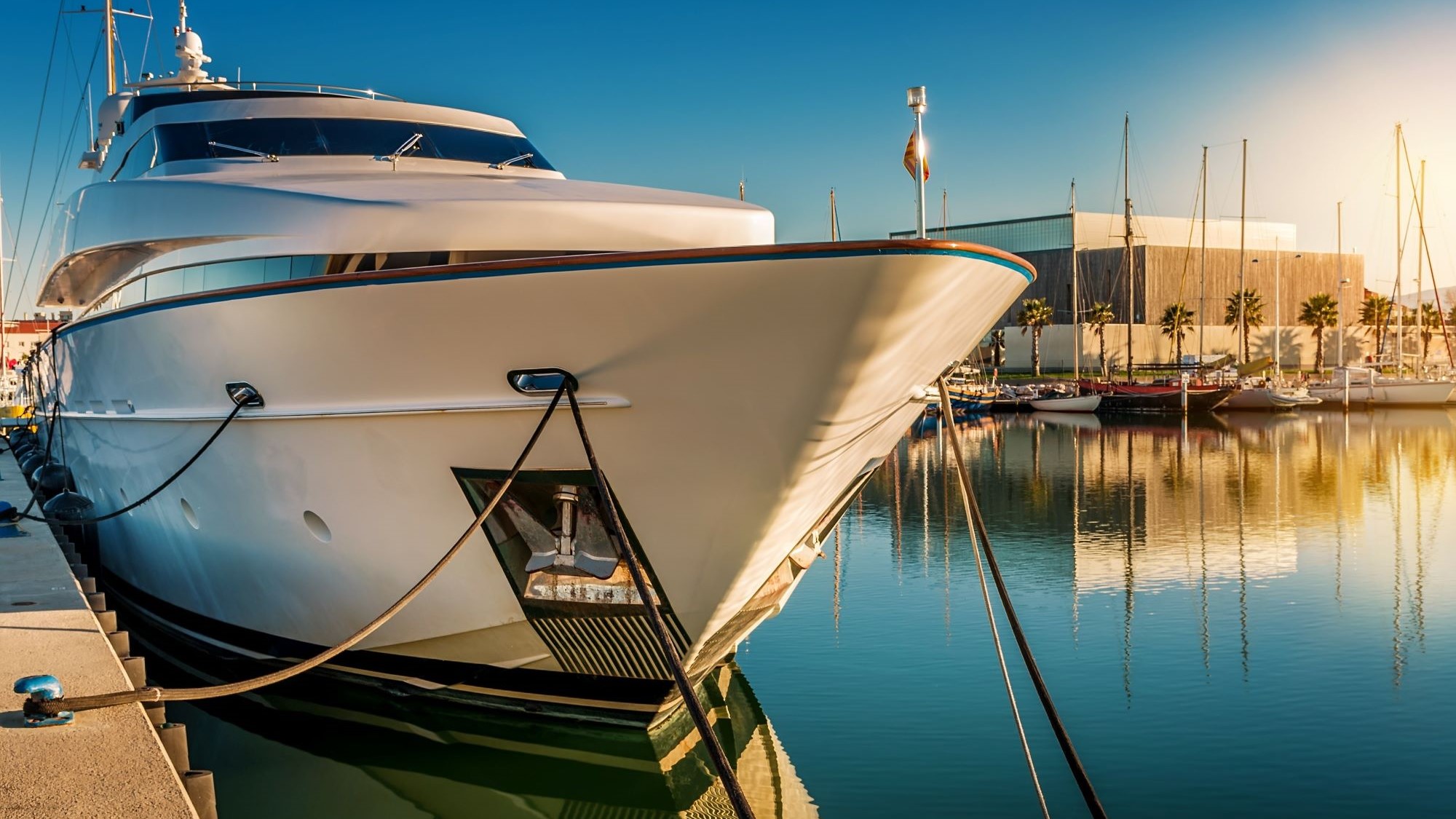
How To Transport A Yacht Safely
April 7, 2023
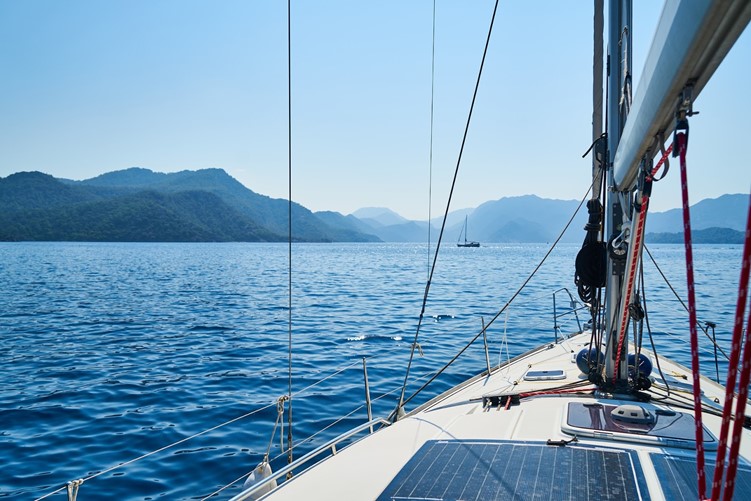
How Hiring a Captain Can Make You a Better Boater
May 29, 2021
24 Comments
Hi, I am hoping you can help me out. I am a USCG vet that was stationed at a small boat station in NJ from 1983-1989. I am trying to get my sea time documented but I am having a very hard time finding out how to do that since the station records were not computerized at that time. I have contacted the NMC and they told me to call the station to get an Abstract of Operations report. They just laughed at me when I called the station. I have requested info from vetrecs.archives.gov but I am sure that will take some time just to get an answer as to wether they can do that or not. I was wondering if you knew how to go about getting the information that I need. I am sure I am not the only person with this issue and I can’t seem to find anyone that knows exactly how to go about documenting that time.
Thanks Jeff

Thanks for your question. I don’t have a lot of advice for you regarding USCG internal procedures. Perhaps you can contact the Office of Personnel and try to get a copy of your service record. Alternatively, is there anyone at that small boat station who knew you? Would the OIC be willing to write a letter? The last and least likely option would be to fill out your own sea service form and see if anyone there would sign off on it for you. Now the regulations speak of a Certificate of Discharge being acceptable. See for example 46 CFR 10.232 ( https://www.law.cornell.edu/cfr/text/46/10.232 ). If you already have that, you might be good to go!
So…start with your Certificate of Discharge and if you don’t have that, then contact the Office of Personnel to see if you can get the requisite documents. Let me know how you make out!
Hi Captain Rob, My name is Elton the 66 year old owner of a small 35 ft. Kingscraft houseboat. I spend a lot of time on one large lake. It is an older wonderful all aluminum vessel but weighs only about 8000 lbs. In the chart the lowest weight rating is 17 tons. I would love to educate myself and become a Captain. Is that possible at some level? I would also have to document my own time as pilot.
Sir, you have open to you both options that I describe in my article. You could pursue either a Master’s license OR an Operator of an Uninspected Vessels license. From what you have written, I see no inherent obstacles. You must be able to document your seatime, get a medical evaluation, and pass the 4 or the 3 parts of the written exam depending on which license you choose to pursue. In any event, you would qualify for an Inland license. Your tonnage rating would also depend on which license you pursue. Solely based on what you have said above, you would qualify for a 50 ton Master’s license. If you pursue an OUPV, that comes with a tonnage rating of 100 tons. For most people, the biggest challenge is acceptably documenting seatime. (It needs all be as captain. You can include time served as master, mate, or crew but NOT as a paying passenger.) If your concern is your age, I know a few captain’s in the 60s and 70s. I am one of the former myself. Good luck!
Capt.Rob I am US Army Veteran And I was wondering if their was a school i could attend to obtain a licence, I ask this because i have to decide what i want to go to school for and this job would be a top pick for me. Any help on this matter would be greatly appreciated thanks
There are MANY captain schools that can help you with the written tests but there are NO schools that can help you with the sea time requirements unless you are considering enrolling in a maritime college like Kings Point or Fort Schuyler in the New York State university system. I used Mariners Learning System for my written tests only because it was more convenient than going to the USCG REC to take the exams.
Where would I get sea service forms . I have owned and operated my own boats for over 30 years and am now being asked to get a captains liscence
There is a link in the article for the National Maritime Center. All the forms you needs can be found on their website. Alternatively, you can search for USCG National Maritime Center with your favorite search engine.
Couple questions. Would working as a divemaster on a dive boat in the Gulf of Mexico count for near coastal sea time? And if you were to have 8 hours of sea time in one day, could you potentially count that as two days at sea? Or would it still be just one day? Thanks for all the info this has been a huge help!
Any time spent aboard a vessel underway counts as long as the owner, manager, or master of the vessel will attest to that. When submitting Sea Service forms, your option for your role aboard the vessel are things like crew, mate, master, engineer, etc. You will need to determine what your position was. Divemaster is not recognized and does not speak to maritime skills necessarily. (For example, you can dive from shore never having been in a boat.) Regarding the near coastal time, you just need to verify that the vessel upon which you served was indeed in near-coastal or ocean waters. The form has spaces for days spent within the specified boundaries and outside those boundaries. I once saw an interactive chart online for finding the boundary lines in a given area. For your purposes, you cannot count 8 hours as two days underway. You need a MINIMUM of 4 hours underway to count that day. Being at anchor or otherwise moored or secured does not count. Good luck!
Capt. Lots of good and helpful info. I boated the Chesapeake for 10+yrs, from the Delaware bay to Virginia in a 27′ cruiser. i’ve not been on the water since 2012. So to be clear, I need to acquire some time on a charter vessel to even attempt the basic “6-pack”. I have my CG boating skills and seamanship certificates,and will work on the CG719S. Living in Florida, lots of opportunity, should have done this sooner !! Thanks
Thank you for your feedback. I am glad you found the article helpful. Apart from documenting your sea time, I found the most labor intensive aspect was verifying that a) I had all the documents that I needed and b) I had correctly completely all of the USCG forms. A lesser challenge may be in determining what correct application fees are. If you are not sure, contact USCG NMC by phone, email, or online chat to get clarification on what fees you have to pay. Good luck!
This is great info..
I am starting out (hopefully) as a plan is due to new lifestyle i desire to get an two oceans open ocean 800 expedition catamaran (again very expensive so fingers crossed) but the plan is while the vessel is being built, i can take several classes and get a few certifications prior to launch, then as life you see everywhere on youtube for example have the vessel at dock, then day trips, then a week trip and just push it a little further until you are ready for the maiden voyage, really looking to live off anchorage in around the philippines / guam area mostly philippines or south pacific area, mostly friends and family but my question is any licence for that type of boat, and also if you have heard of any schools in the philippines? I know they have a few courses that are completely certified like any american school but a fraction of the cost, just curious if any particular licence i need to get or have?
You did not say whether you intended to take passengers for hire. Generally, one only needs to be licensed if you are getting paid to carry passengers OR if you working in more advanced maritime fields like tug boats and large cargo vessels. If you are only operating your private vessel for your own personal or recreational purposes, you usually do not need any kind of license other than possibly taking a multiple choice test on local safety rules and rules of the road. I am not familiar with the licensing requirements in foreign venues like the Philippines. Each nation has its own requirements. I was able to find information at this link: http://www.marina.gov.ph/policies/MCs/mc170.pdf . You may find some useful information in that document.
Good luck! And safe sailing…
Your information was helpful, thank you. I have decided to pursue getting my License but I am starting from scratch. Should I take classes before looking to get sea time? And how does one go about getting sea time with no experience?
Any course work you take will typically culminate in a certificate of completion. However that certificate will only be valid for 1 year. Therefore, do NOT take any exams more than about 6 months prior to submitting your original license application. As for sea time, you can look for marine work that does not require a license like deck crew on water taxis or excursion boats. Time spent on a friend’s boat counts. Have that friend complete and sign a sea service form. Sea time never expires and can be counted from the age of 15. Learn your rules of the road and learn to feel your vessel. Driving a boat is a lot different from driving a car. As a licensed captain, you are expected to step up to the helm and handle the ship with relatively little training time. Good luck!
Great article, thanks for writing it! Does time spent aboard a recreational boat that I own, when I am the only person aboard, count towards sea time? If so how do I document that – there’s no one to sign for the time. Thanks again.
Time spent on your own boat absolutely counts. You would sign the CG-719S Sea Service form yourself where it says Applicant AND where it says Person Attesting to Experience. However, you will have to provide proof of ownership for the vessel. The Bill of Sale is usually what is used but the vessel’s CG document or state registration card should also be sufficient. Remember that seatime is counted only from the age of 15 and it is underway time of at least 4 hours per day. Time on the anchor or alongside do NOT count. The presence of others is irrelevant.
Hi Shane. Sea time is defined as time working aboard in any capacity relevant to the rating you are pursuing. For instance, if you are a bos’n or deck crew, that time it unlikely to count towards a engineer’s license and conversely, time in the engine department or work on mechanical systems would be difficult to apply towards a deck officer’s license. The highest rating one can get on an original (i.e., first) license is 100 Ton Master. It is likely that your Navy time would count; however, your challenge is getting an appropriate service letter from the Navy. You cannot submit a CG-719S for your Navy service as that form is for SMALL VESSEL service. Consult the USCG site at http://www.uscg.mil/nmc for more information. Also note that you may use any valid sea time accrued from the age of 15. Good luck!
Hi Capt. Rob, I have one question rather just some clarification regarding the time at sea, for the tonnage rating. Does “time at sea” mean just that or does it mean operating the vessel. I was in the Navy for several years as an operations specialist and I am not sure what level I would qualify for if I were to pursue getting a Captains license. Also I was wondering how much the entire process would cost.
Hey Rob, Thanks so much for taking the time to write this, it was really very useful to read. This has been on my mind for some considerable time, but I am now finally starting on the road to getting my licence and taking a nautical shift in my career. I have been a sailor all my life, was sailing single handed as soon as I could walk and now own a 38 foot Irwin racer/crusier.
My one big question is online study vs going somewhere to do the required course? I wonder how you gained your licence and what you might recommend?
My issue was primarily NOT wanting to have to take the tests at the NYC REC and to NOT attend intense 8-10 hour weekend classes. I was comfortable with the Rules of the Road and chart navigation issues as well the Deck General material. Since I got a Master’s license (versus the OUPV), there was more legal stuff to know in the category they call Ship’s Business. I did an online course through Mariner’s School in Princeton, NJ. The price was good and the location was convenient for when I did go to take the test.
The bottom line is do what works best for you given what you need to learn or refresh, how much time you have to do it, and where you will need to go to take the final tests.
(Please note that you can submit your application and/or take your tests at ANY REC anywhere. It is not a function of where you live or where you will sail.)
Great article Rob. Thanks for sharing your experience
Thank you for the feedback. Do please let me know if you have any further questions or if I may be of service in some other regard!
Comments are closed.

Why Obtaining Your Captain‘s License Is Essential
How to get your captain's license and pilot your own yacht.
If your boat is longer than 9 metres, without a skipper’s or captain’s license, you cannot legally take it out to sea.
That kind of defeats the purpose of owning a boat, right?
Earning a captain’s license and being able to confidently pilot your own yacht will be your passport to traversing our planet’s beautiful oceans. You will have the freedom to explore the seas to your heart’s content without a care in the world.
Getting the right certification for your requirements, be it a Day Skipper , Coastal Skipper , Local Waters Skipper or Yachtmaster Offshore Certificate of Competence , will allow you and your sailing companions to get the most out of your yacht and enjoy it to the maximum.

Become a yacht captain by acquiring your captain's license
If you already have significant sailing experience, you may want to go the self-study route and simply take your exams at an accredited sailing school.
If you are new to the world of sailing, you’ll want to choose a reputable sailing school. They should provide you with the necessary practical and theoretical training to confidently captain your yacht.
Here are the various Certificates of Competency (COCs) or 'Captains Licenses'
- Inland Waters Skipper
If you hold this license, you will be qualified to skipper a sailboat inland during day and night.
- Day Skipper
This skipper’s license will qualify you to captain a sailboat at sea in local waters from sunrise to sunset. Local waters are defined as 15 nautical miles, or 25 miles, from your home port, given that they are no more than 15 nautical miles from an approved safe haven.
- Local Waters Skipper
Holding this license, you will be qualified to skipper a sailboat at sea by day or by night in local waters, as defined for the Day Skipper’s license set out above.
- Coastal Skipper
A Coastal Skipper‘s license will qualify you to skipper a sailboat on any coastal passage, as long as it is within 40 nautical miles of the coast, day or night.
- Yachtmaster Offshore
A Yachtmaster Offshore skipper’s license will qualify you to captain a sailboat on any extended or ocean passage.
- Yachtmaster Ocean
A Yachtmaster Ocean certificate is a badge of honour, indicating that you have mastered celestial navigation.

To sail around the world, you will need a captains license!
You will need your international accreditation through the Royal Yacht Association or International Yacht Training if you wish to skipper a yacht or superyacht as a career.
International Certificate of Competence
If you plan to sail your yacht around the world, you’ll have to obtain an International Certificate of Competence (ICC) . The ICC has been likened to an international driver’s license for boats.
If you have your sights set on the waters of Europe and the Mediterranean, you will need an ICC to do so legally. However, it is essential to note that the US and Canada have different international captain license requirements and do not recognise the International Certificate of Competence.
You will have to contact a Royal Yachting Association affiliate to obtain an ICC in North America.
COCs - start your captain's license from the beginning
The various Certificates of Competence are progressive, so it makes sense to start with your Day Skipper’s license , and progress to your Yacht master Offshore captain’s license from thereon.
An important consideration to keep in mind is that the Certificate of Competence you select will very much depend on your individual needs and circumstances.
For example, the requirements for a Recreational Sailing Certificate of Competence differ from a Commercial Sailing Certificate of Competence . So, your motivation (recreational, commercial or professional international sailing) will determine which skipper training course you select.
There are also some necessary prerequisites that have to be met before any sailor can apply for skipper’s license training. They are:
- All candidates must be at least 16 years of age
- For ocean sailing, candidates need a radio operator’s certificate valid for operating a marine VHF radio in South Africa
- All candidates will have to pass a basic eye test. If you are colour blind, you will not be able to proceed past the Day Skipper Certificate of Competence
- Candidates for the Coastal Skipper Certificate of Competence and above must have a current and valid Level 1 First Aid Certificate
- All candidates will have to produce a logbook of experience to get their qualification. The required expertise to be logged varies depending on the certification course.
Here you will find lots of information on the various sailing Certificates of Competence (or skipper tickets, as they are also known) available to you.
Just keep in mind that such certificates (and what they will legally qualify you for) vary from country to country.
If you are a non-SA citizen, you will have to research your country’s legal requirements for the various sailing Certificates of Competence.
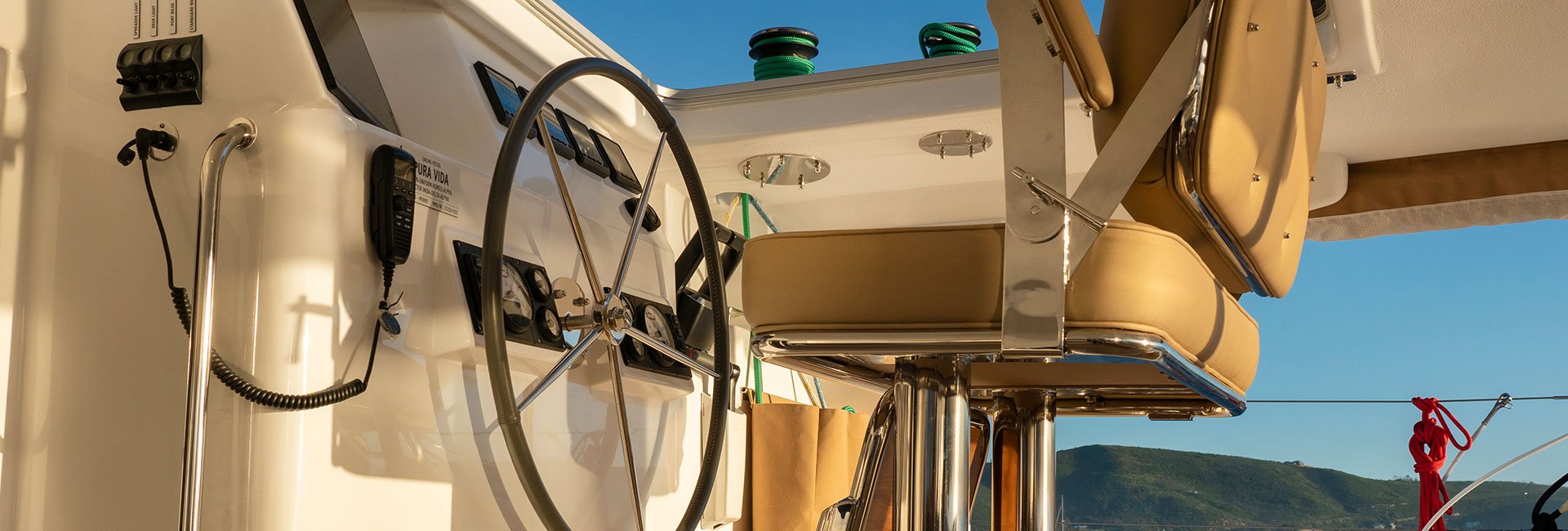
How long does it take to become a yacht captain?
This will depend on the skipper’s course you decide on. To obtain certification in basic sailing skills is quite affordable and could take as little as three weekends to complete.
Courses like the Yachtmaster Ocean Certificate of Competence are much more comprehensive, intensive and costly. This course takes about 17 weeks to complete.
Why getting your skipper’s or captain’s license will be worth every cent
Unless you have a sailing crew (including a qualified skipper) at the ready, it will be absolutely worth your while to obtain the necessary credentials to skipper your yacht yourself.
South Africa has many reputable, accredited sailing schools. They can provide you with all the information and training you need to obtain the captain’s or skipper’s license that is right for your requirements.
Undergoing the necessary practical and theoretical training will give you all the knowledge and experience to sail your boat with confidence.
What’s more, your skipper’s license training is likely to be an exhilarating adventure in itself.
It is also an excellent way to meet other sailing enthusiasts who might just become friends for life.


Yacht Maintenance - Top Tips for Protecting Your Investment
Essential things to know about boat insurance, top things to know about yacht solar power, building a yacht: top things to know about the yacht-building process, get all the latest to your inbox, discovery awaits.


- Mariners Learning System - User Guide
- Online Learning
- Online Testing
- Captain's Licenses
- FCC Licenses
- Other Helpful Articles
- Contact Information
- General Questions
- General Requirements
- OUPV/Six-Pack
- 25/50 or 100 Ton Masters
- OUPV/Six-Pack Upgrade to 25/50 or 100 Ton Masters
- Assistance Towing Endorsement
- Auxiliary Sailing Endorsement
- Deck License Renewal
- Captain's Licenses - Application
- Overview on FCC Licenses
- Types of FCC Licenses
- FCC Licenses - Application
- Help Center
- Captain's Licenses - General
USCG Captain's License Requirements: MMC Eligibility
Navigating the requirements: becoming a certified captain in the maritime industry.
Obtaining a USCG Captain's License, also known as a Merchant Mariner Credential (MMC), is required for individuals aspiring to become licensed captains in the maritime industry. However, candidates must meet specific eligibility requirements for a USCG Captain's License. This article serves as a comprehensive guide, outlining the various criteria and qualifications necessary to obtain a USCG Captain's License.
Age Requirements
Applicants must meet the U.S. Coast Guard (USCG) minimum age requirements to be eligible for a USCG Captain's license. Generally, the minimum age is 18 years for an OUPV (Operator of Uninspected Passenger Vessels) License and 19 years for higher-level licenses, such as the Master or Mate License. Verifying the specific age requirements for the license category you are pursuing is important.
Sea Service Experience
Sea service experience is vital for obtaining a USCG Captain's License. Applicants must accumulate a specific number of days at sea, which varies depending on the license category and desired tonnage. The USCG typically requires at least 360 days of documented sea service experience for the OUPV License and higher experience levels for more advanced licenses.
Training and Courses
Completing the necessary training and courses is essential for qualifying for a USCG Captain's License. Successful applicants must complete required courses, such as navigation, safety, firefighting, and first aid training. These courses equip the candidates with the necessary knowledge and skills to operate vessels safely and efficiently. Coast Guard-approved courses that meet these requirements are available through Mariners Learning System.
Medical and Physical Fitness Standards
Applicants must meet medical and physical fitness standards to obtain a USCG Captain's License. The USCG requires individuals to undergo a thorough medical examination by a designated medical practitioner. The examination assesses the applicant's physical and mental fitness, ensuring they can perform the duties of a licensed captain.
Meeting the eligibility requirements is essential for obtaining a USCG Captain's License and pursuing a successful career in the maritime industry. By familiarizing yourself with the age requirements, sea service experience, training, medical and physical fitness standards, and character requirements, you can ensure you meet the qualifications necessary to apply for a USCG Captain's License. Complying with these requirements shows your commitment to professionalism and safety, setting the foundation for a rewarding and fulfilling career as a licensed boat captain.

Captain’s License Requirements: Clearing the Fog

Author: President and Founder of Confident Captain
Kent Dresser
Embarking on the journey to get your captain’s license can feel like navigating through a sea of misinformation. From well-meaning advice from ‘licensed friends’ to ‘dockside expertise’, it’s easy to get lost and it’s remarkably easy to get bad information. That’s where Confident Captain comes in. We’re here to guide you with clear, accurate information directly from the US Coast Guard’s regulations , helping you understand the essentials of sea time and general requirements for becoming a licensed captain.
Here is a summary of the very basics of sea time requirements . It can get more complicated than this, but this is the best ‘first read’ for any mariner who is just getting started toward his or her license.
OUPV (Six-Pack) License
Eligibility: You qualify if you’re a U.S. citizen or resident alien, 18 years or older, can pass a drug test, and pay your USCG application/license fees.
Sea Service : 360 days total. Whether you’re at sea for 4 hours or 24, it all counts as one day.
Recency: 90 days of your sea time must be in the last 3 years.
Health Check: A basic medical physical to apply for a Medical Certificate along with the license from the USCG.
Learning: A US Coast Guard-recognized first-aid CPR course and, a Confident Captain OUPV course completion certificate in lieu of a US Coast Guard exam.
Master 25/50/100 Ton License
Eligibility: You qualify if you’re a U.S. citizen, 19 or older! Just pass that drug test and pay your USCG fees.
Sea Service:
Inland license – 360 Days
Near Coastal License – 720 Days
Also, your sea time must include the following:
For 25 GRT Master : 271 days on small boats or 90 days on 1-25 GRT boats.
For 50 GRT Master : 90 days on 26 GRT or bigger boats.
For 100 GRT Master : 360 days on inland waters, or 90 days on 51 GRT or bigger boats.
For 100 GRT Master Near Coastal: A total of 720 days with 360 being “outside the boundary line”. We’ll explain this “line” more soon, but think of it as offshore of the coastal US.
Health Check: A basic medical physical to apply for a Medical Certificate along with the license from the USCG.
Learning: A US Coast Guard-recognized first-aid CPR course and, a Confident Captain Master 25/50/100 GT course completion certificate in lieu of a US Coast Guard exam.
Endorsements: For an Auxiliary Sail or Assistance Towing endorsement you will need a short 4-hour online course for each. We offer both online after you complete your license course.
Documenting Your Sea Time
To document your sea time for the license, the Small Vessel Sea Service Form CG-719S is your go-to. It’s all about self-reporting your days at sea, whether on your own boat or someone else’s. Just make sure you have proof of boat ownership or a signed form from the boat owner if it’s not your vessel. No need for logbooks, your integrity is assumed. Please do not inflate your sea time. That is illegal. Ready to set sail on your Captain’s License journey? Dive into our detailed online courses, perfectly tailored for these licensing requirements. Navigate to Confident Captain for a clear, reliable path to your captain’s license. With us, you’ll steer clear of the foggy waters of misinformation!
Related Articles
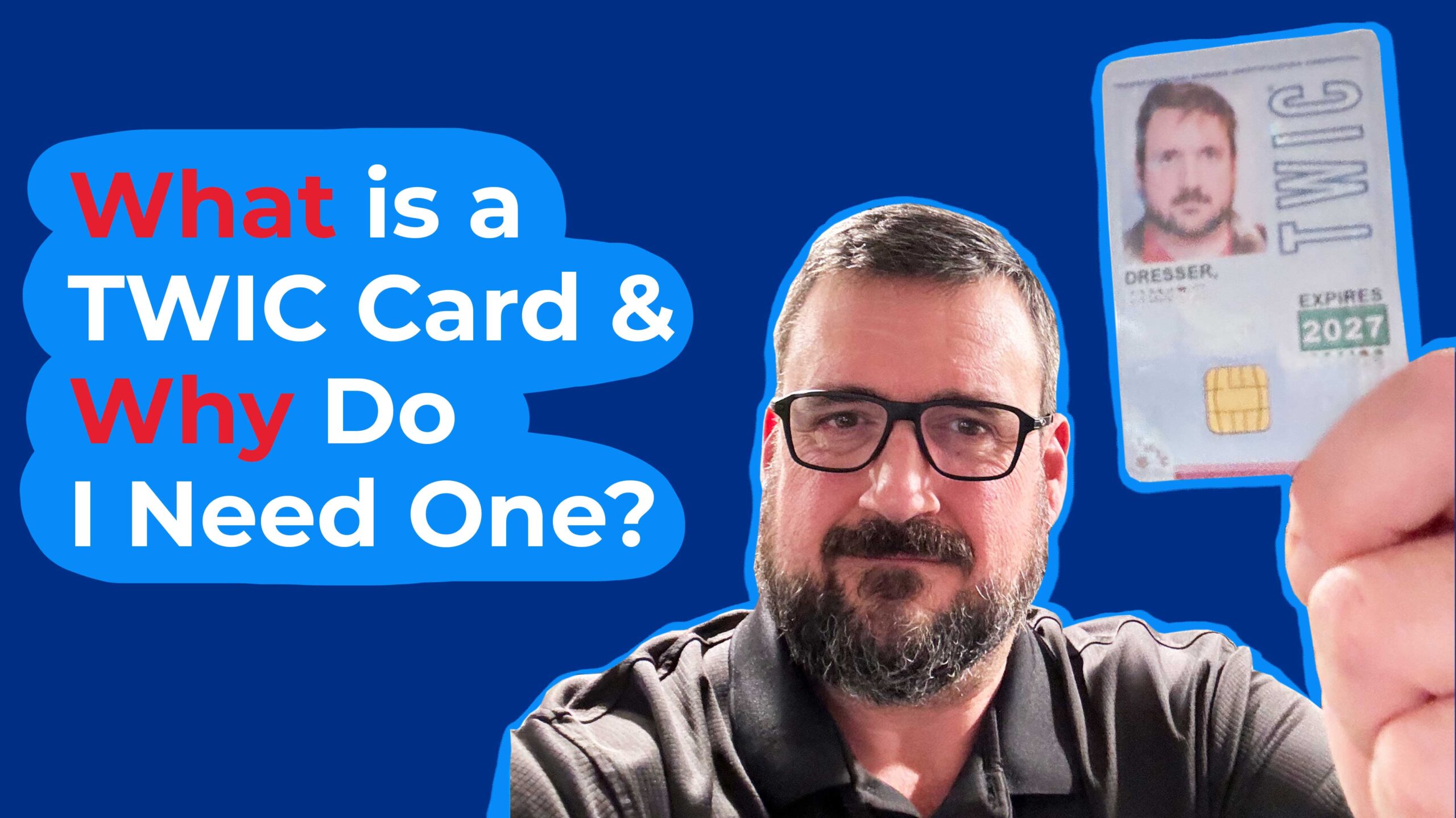
- ► District 5SR
- ► Flotillas
- ► About Division 9
- ► Boating Courses
- ► Vessel Safety Checks
- ► Marine Safety
- ► Boater's Links
- ► Captains License Info
- ► Aux Members ∅
- ► New Member Info
- ► National Help Desk

Enter Search Term(s):
Captains' license information, why you need a license.
Licenses are required in order to legally carry passengers for hire. This includes charters for fishing, sightseeing, diving, transportation, teaching or any use which is considered a “passenger for hire” situation. Many companies require them for boat deliveries.
OUPV License
This license is properly termed “Operator of Uninspected Passenger Vessels” ( OUPV ) and is commonly referred to as the “6-pack” or “Charterboat Captain’s License”. The word “uninspected” means that the equipment required and the design of the boat are less regulated. “6-pack” refers to the 6 passenger limitation placed on the license. OUPV licenses are issued with a particular route. Your license can be for the Great Lakes, Inland routes meaning bays, sounds, rivers, lakes, etc. of the US or Near Coastal routes out to 100 miles offshore. All OUPV licenses are for 100 Gross Tons vessels (about 100 feet, more or less). The OUPV license may be upgraded to a Master license.
Master License
A Master license is required if you operate “inspected” vessels. Inspected vessels are allowed to carry more than 6 passengers. To become Inspected, the vessel must be built in accordance with rigid USCG Commercial Vessel Inspection standards.
Requirements For All Original Licenses
- Application
- Physical taken within 12 months
- Approved drug test taken within 6 months
- Approved CPR and First Aid taken within 12 months
Requirements For OUPV License
- 90 days service in the last 3 years on vessels of appropriate tonnage.
- Near Coastal: 360 days deck service in the operation of vessels, including 90 days service on ocean or near coastal waters.
- Great Lakes/Inland: 360 days deck service in the operation of vessels, including 90 days service on Great Lakes.
- Inland: 360 days deck service in the operation of vessels.
- Towing Endorsement: Must request and pass towing endorsement examination.
Requirements For Master License Master of Vessels on Not More Than 100 Gross Registered Tons
- Near Coastal: 720 days of service steam, motor, or auxiliary sail vessels on ocean or near coastal waters (360 days inland is acceptable)
- Great Lakes and Inland: 360 days service steam, motor, sail/aux. sail vessels including 90 days on Great Lakes waters
- Inland: 360 days service steam, motor, aux. sail vessels on any waters
- Rivers: 360 days service steam, motor, aux. sail vessels on any waters
- Sailing Endorsement: Must submit evidence of 360 days of service on sail or auxiliary sail vessels (service obtained before license OK).
- Towing Endorsement: Must request and pass towing endorsement examination or complete course.
License Renewal
All USCG licenses must be renewed every 5 years. No written exams are required. You will need a renewal application, a physical and an approved drug test.
Further Information
The US Coast Guard issues all Captain Licenses. The Regional Examination Centers (REC) provide the applications and plenty of information about requirements and when and where to take the exams.
Some commercial companies have qualified and are approved by the Coast Guard to administer some of the exams. They often provide exam-preparation classes for a fee.
When Do You Need a USCG Captain's License?
Need a USCG Captain's License? It's a must for commercial ops and varies by state for private boating. Know the requirements.
If you own a boat or yacht, you might be wondering if or when you need a captain’s license. And if you do, which license do you need? The last thing you want is to be stopped by the Coast Guard and be unprepared.
This article will answer all of your boating license requirement questions.

Private boat captain license requirements
One of the most common questions boat owners ask is whether they need a license or not to captain their boat. The simplest answer is if you’re taking any paying passengers on your boat, you need a captain’s license.
There are other state requirements that you must comply with. For example, California requires everyone to carry a California Boater Card while driving a vessel powered by a motor of 15 hp or more. You obtain a Boater Card by taking a short boating safety course. Many other states have similar laws that require you to complete a course, and carry proof.
These requirements vary by state, so make sure to check your state requirements.
Note that a state boating card is different from a Coast Guard Captain’s license. A boat safety course qualifies you to operate your personal boat, and have your friends and family on board.
A USCG license is needed when you’re operating a vessel in a commercial manner. When people are paying you, you need a license to operate.
The two common USCG licenses are the Master’s License and the OUPV license.
OUPV / Six-Pack License
The OUPV (Operator of an Uninspected Passenger Vessel) license is one of the most common licenses. As the name suggests, this license allows you to operate an Uninspected Vessel .
An Uninspected Vessel is limited to six paying passengers, which is why the OUPV license is also often called the Six Pack license .
People choose to get their OUPV license even if they never plan on taking paying passengers on their boat. Getting your license will teach you more about navigation and maritime safety compared to the basic boating safety course that most states require.
This license allows you to do small fishing trips, sightseeing tours, dive trips, and other commercial activities in the eyes of the USCG. There are may be other state requirements that you must comply with along with your Six Pack license such as a commercial charter fishing permit.
These requirements vary by state, so make sure to check your state requirements. The OUPV license is also limited to vessels that are 100 gross registered tons and under (about 80 feet long). Any OUPV license can be used for a 100 GRT vessel, but there are 3 different license types that qualify you for bodies of water: Inland, Great Lakes, and Near Coastal.
If you want to have more than 6 paying passengers, or captain a larger vessel, you’ll need to get your USCG Master’s License.
Master’s License
The Master’s License is required if you’re taking 7 or more paying passengers, and for USCG-inspected vessels. This license also qualifies you to captain uninspected vessels. To qualify for your Master’s License, you’ll need to complete the application form for Merchant Mariner Credentials (CG-719B form). And you will need a minimum of 360 days of documented sea service.
There are different Master Licenses that qualify you to captain different size vessels and on different waters. For example, a 50-Ton Master Near Coastal license qualifies you to captain a vessel up to 50 GRT in Near Coastal and Inland waters. You can always apply for a new endorsement or increase in scope, such as 50-Ton Inland to 50-Ton Near Coastal.
General License Requirements and Process
As mentioned above, you don’t need a USCG license for your personal boat or yacht, unless you want to use it for commercial purposes.
Here are the requirements and steps you need to take to get your USCG license.
Requirements
OUPV / Six Pack
- Ability to speak and understand English.
- U.S. Citizenship, or permanent residency.
- At least 18 years old.
- Valid Medical Certificate.
- Pass USCG-Approved Drug Test.
- Paid Mariner Fees.
- 360+ Days of Sea Service, 90+ Days within 3 years.
- Complete CG exam or approved course.
- USCG Approved CPR / FA within 1 year.
- At least 19 years old.
Licensing Process
1. decide which license you want..
You can upgrade your license from an OUPV to Master’s, or from a 25-Ton Master to 100-Ton Master, but it’s better to decide which license you want, and obtain that one first.
Read : Which USCG Captain's License Should You Choose?
2. Obtain a Transportation Worker Identification Card
A valid TWIC is required for all mariners getting their first United States Coast Guard-issued credentials.
3. Document Sea Days
USCG licenses require 360 sea days and 90 of those days within the past 3 years. You’ll complete a CG 719S form and attach it to your application. The vessel and waters you were on during that time will determine the endorsement you receive.
You will be required to complete a general physical exam. Any physician, physician assistant, or nurse practitioner who is licensed in the U.S. or U.S. Territory can sign off on your medical exam on the CG-719K form.
5. Drug Test
You will need to have negative drug test results within 185 days of your application. The test must be a DOT | USCG 5 Panel testing for Marijuana, Cocaine, Opiates, Phencyclidine, and Amphetamines. The USCG won’t accept any other drug test.
6. First Aid/CPR
You will need to complete an in-person First Aid and CPR course within the past 12 months. We recommend finding an American Red Cross First Aid and CPR course near you.
7. Pay.gov Fees
The last step in this process before submitting your application is to pay the Mariner fees. The costs vary depending on the endorsement type and course fees. When you submit your application using MM-SEAS Perfect Application, the Pay.gov fees are included.
8. Submit Your Application
To get your MMC, you’ll need to complete and submit the CG-719B form. To get your MMC with the proper endorsements, you’ll need to provide proof of your sea service, that you have a TWIC or applied for one, and that you’ve paid your required fees.
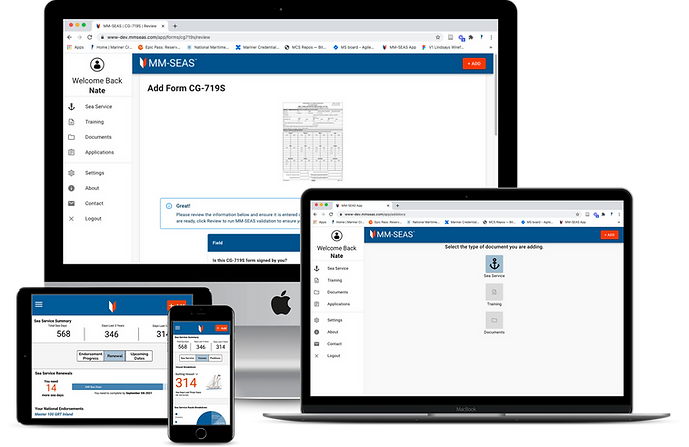
We hope this made your life a little easier and if you have other questions the MM-SEAS team is always here to help!
MM-SEAS is free to use on your own and if you need some more personalized help you can upgrade to MM-SEAS Pro inside of the site.
No matter what, when you are ready to submit your application, you can choose to have the MM-SEAS staff create a perfect application, handle the USCG application fees and work with the USCG on your behalf to resolve any issues for a flat fee of $349 or you can choose to submit on your own.
Pro MM-SEAS members get access to unlimited live 1 on 1 calls with one of our USCG Licensing Specialists. We've found that answering questions live with screen sharing in a video call makes both of our lives easier. Pro MM-SEAS members can access these features inside of MM-SEAS under License Guidance.
Need to renew, upgrade or get your first USCG license? We're here to help.
About the author.

Sam Mckay is a NOAA Corps Veteran working on his PhD in Nuclear Fusion
%20(1).webp)

What Size Yacht Requires a Captain’s License? Find Out Here

Have you ever dreamed of captaining your own yacht? Whether you’re a professional skipper or an amateur enthusiast, owning a yacht requires a unique set of skills and qualifications.
In this article, we’ll discuss what size yacht requires a captain’s license, the process for obtaining one, the benefits, and the penalties for operating a yacht without a license.
Read on to learn everything you need to know about captain’s licenses.
Table of Contents
Short Answer
In the United States, a captain’s license is required to operate any vessel of more than 25 gross tons, or any vessel that carries passengers for hire.
This includes larger yachts, as well as commercial vessels.
Depending on the size and the intended use, a captain may need to obtain a Master’s license or a higher level of certification.
Additionally, some states may require captains to have a specific license for vessels operating in their waters.
What is a Captain’s License?
A captain’s license is a qualification required in the United States for individuals wishing to operate a yacht larger than 25 gross tons.
This license is granted by the U.
Coast Guard and allows the holder to be in compliance with all federal laws and regulations governing the operation of large vessels.
This license is also necessary for commercial purposes, such as chartering a yacht for business purposes.
To obtain a captain’s license, the applicant must pass a series of tests administered by the U.
Coast Guard.
These tests include a physical examination, a written exam, and a practical exam.
Those who pass these tests are awarded a captain’s license and are legally authorized to safely and legally operate a yacht of any size.
The captain’s license is an important qualification for yacht owners, as it ensures that they are operating their vessels in compliance with all laws and regulations.
It also serves as a demonstration of the holder’s expertise in the field of boating and maritime operations.
It is important to note that the captain’s license is a prerequisite for many commercial activities involving the operation of a yacht, such as chartering and other business activities.
A captain’s license is an important qualification for any yacht owner, as it ensures that they are in compliance with all laws and regulations.
Those who wish to obtain a captain’s license should understand the steps necessary to do so, as well as the importance of the license for operating a yacht.
What is the Minimum Size of a Yacht Requiring a Captain’s License?

When it comes to the operation of a yacht, safety should always be paramount.
In the United States, if you wish to operate a yacht larger than 25 gross tons, you will be required to have a valid captain’s license from the U.
This license is necessary to be in compliance with the federal laws and regulations governing the operation of large vessels.
The license is also required if the yacht is to be utilized for commercial purposes.
So, what size yacht requires a captain’s license? Generally speaking, if the yacht is larger than 25 gross tons, then a captain’s license is required.
The exact size of the vessel will depend on several factors, such as the type of vessel, its gross tonnage, and its intended use.
Coast Guard has a detailed set of regulations that outlines the requirements for licensing, and it is recommended that prospective captains familiarize themselves with these regulations before attempting to operate a yacht.
Additionally, the size of the yacht’s crew can also be taken into consideration.
Generally speaking, if the vessel requires more than four crew members, then a captain’s license may be necessary.
Additionally, some states may have different requirements for licensing, so it is important to familiarize yourself with the laws and regulations for the state in which you will be operating the vessel.
A captain’s license is necessary to safely and legally operate a yacht of any size.
It is important to note that the captain’s license is not the same as a recreational boating license, and it is important to understand the difference between the two.
In conclusion, the minimum size of a yacht requiring a captain’s license is 25 gross tons.
It is important to familiarize yourself with the laws and regulations pertaining to the operation of large vessels and to obtain the necessary licensing before attempting to operate a yacht.
What is the Process for Obtaining a Captain’s License?
Obtaining a captain’s license is not a simple process.
It requires dedication, preparation and commitment.
In the United States, the U.
Coast Guard is responsible for issuing captain’s licenses.
To become licensed, an applicant must first pass a series of tests administered by the U.
This includes a physical examination, a written exam and a practical exam.
The physical examination is conducted to ensure that the applicant is healthy enough to operate a vessel.
This exam includes measuring the applicant’s vision, hearing, and physical strength.
The written exam tests the applicant’s knowledge of nautical rules, regulations, and practices.
This exam is designed to ensure the applicant has a comprehensive understanding of the procedures and laws related to operating a yacht.
The practical exam is designed to test the applicant’s ability to safely and effectively operate a vessel.
This exam is conducted on the water, and the applicant must demonstrate their ability to maneuver the vessel in a variety of conditions.
In addition to passing these tests, the applicant must also possess a valid state-issued driver’s license, and must be at least 18 years of age.
The applicant must also provide proof of U.
citizenship, or a valid alien resident card.
The process of obtaining a captain’s license can be long and challenging.
However, those who successfully obtain a license will be able to legally and safely operate any yacht larger than 25 gross tons.
What Are the Requirements for Obtaining a Captain’s License?

Obtaining a captain’s license is an important and mandatory step for anyone who wishes to operate a yacht larger than 25 gross tons in the United States.
This license is necessary in order to be in compliance with federal laws and regulations governing the operation of large vessels, as well as if the yacht is to be used for commercial purposes.
The process of obtaining a captain’s license requires applicants to pass a series of tests administered by the U.
Coast Guard, including a physical examination, a written exam, and a practical exam.
The physical examination is to ensure that the applicant is physically fit to be the captain of a large vessel.
This will involve a vision and hearing test, as well as a general physical exam to make sure the applicant is healthy enough to handle the duties of a captain.
The written exam is a series of multiple-choice questions that cover topics such as navigation, marine safety, and boating laws.
This exam is designed to test the applicant’s knowledge of the applicable laws, regulations, and procedures for operating a large vessel.
The practical exam is a hands-on examination of the applicant’s ability to safely and securely operate a vessel.
This will involve tasks such as docking and anchoring, emergency procedures, and navigational skills.
This exam is designed to ensure that the applicant is capable of safely navigating a yacht in any environment.
It is important to note that once a captain’s license is obtained, it is valid for five years.
After five years, the license must be renewed in order to remain valid.
Renewing a captain’s license requires the applicant to complete a recertification course, as well as pass an oral exam.
By obtaining a captain’s license, the applicant is demonstrating their commitment to safety, as well as their knowledge of the applicable laws and regulations governing the operation of large vessels.
This license is necessary to safely and legally operate a yacht of any size, and is a vital part of the process of becoming a responsible and capable captain.
What Are the Benefits of Having a Captain’s License?
When it comes to operating a yacht, having a valid captain’s license is essential.
Not only is it a requirement by the U.
Coast Guard, but it also provides a number of benefits to the captain and passengers.
By obtaining a captain’s license, the vessel operator will have the knowledge and skills necessary to safely and legally operate a vessel of any size.
Having a captain’s license demonstrates to other boat operators and passengers that the captain is knowledgeable and capable of safely navigating and operating the boat.
This can help to build trust and confidence among all those on board, and make for a more enjoyable experience.
The captain’s license also provides a sense of responsibility to the captain and passengers, as the license holder is held to a higher standard when it comes to safety and navigation.
A captain’s license can also be beneficial for those wishing to pursue commercial opportunities with their yacht.
Having a valid license can increase the chances of qualifying for charter boat services, as most companies require captains to have a valid license.
Additionally, having a captain’s license may make it easier to obtain insurance and other services, such as financing, for the yacht.
Finally, having a captain’s license can provide a sense of accomplishment to the individual who has earned it.
Captains who have earned their license have demonstrated their knowledge and skill in operating a vessel, which is something that should be celebrated.
In summary, having a captain’s license can provide a number of benefits to the captain and passengers of a yacht.
Coast Guard, but it also provides a sense of trust and responsibility, as well as commercial opportunities and a sense of accomplishment.
What Are the Penalties for Operating a Yacht Without a Captain’s License?

Operating a yacht without a valid captain’s license is a serious offense, and it can result in significant penalties.
Depending on the size of the yacht, the operator may be subject to civil and criminal penalties, including fines, imprisonment, and suspension or revocation of the vessel’s registration.
The penalties for operating a yacht without a captain’s license can vary greatly depending on the size and purpose of the vessel.
For example, operating a large, commercial vessel without a captain’s license can result in fines of up to $50,000, and the vessel may be confiscated and the operator may face up to 10 years in prison.
Operating a recreational vessel without a captain’s license can result in fines of up to $5,000 and the vessel may be seized and the operator may face up to six months in prison.
In addition to the legal penalties, operating a yacht without a captain’s license can also put people’s lives and property at risk.
A captain’s license demonstrates a working knowledge of the federal laws and regulations governing the operation of large vessels, and it also ensures that the operator is familiar with the safe and proper operation of their vessel.
Operating a yacht without a captain’s license is a serious offense and can result in significant penalties.
It is important to remember that a captain’s license is necessary to safely and legally operate a yacht of any size in the United States.
If you wish to operate a yacht larger than 25 gross tons, make sure to obtain a valid captain’s license from the U.
What Are the Different Types of Captain’s Licenses?
When it comes to operating a yacht larger than 25 gross tons, having a valid captain’s license is absolutely essential.
The United States Coast Guard (USCG) issues several different types of captain’s licenses depending on the size of the vessel and its intended purpose.
The most basic license is the Operator of Uninspected Passenger Vessel (OUPV) license, which allows a captain to operate a vessel of up to 6 passengers for hire within a certain geographic area.
This license is commonly referred to as a “six-pack license.
” Next up is the Master of Near Coastal Waters license, which allows a captain to operate a vessel of up to 100 gross tons within a certain geographic area.
This license is commonly referred to as a “100-ton license.
” If a captain wishes to operate a vessel larger than 100 gross tons, then he or she will need to obtain a Master of Oceans license.
This allows a captain to operate any size vessel, anywhere in the world.
Finally, there is the Master of Assistance Towing license, which allows a captain to operate a vessel of any size for towing purposes.
This license is commonly referred to as a “towing license.
” No matter which type of captain’s license you need, it is important to note that all of them require the applicant to pass a series of tests administered by the USCG, including a physical examination, a written exam, and a practical exam.
By obtaining any of the above captain’s licenses, you will be in compliance with the federal laws and regulations governing the operation of large vessels, as well as be able to safely and legally operate a yacht of any size.
Final Thoughts
It is important to understand the requirements for obtaining a captains license if you plan on operating a yacht over 25 gross tons.
Not only will it make your voyage safer and more enjoyable, but it is also a requirement for commercial operations.
With the right knowledge and preparation, obtaining a captains license can be an achievable goal.
To learn more about the process, requirements, and benefits of having a captains license, be sure to visit the U.
Coast Guard website.
James Frami
At the age of 15, he and four other friends from his neighborhood constructed their first boat. He has been sailing for almost 30 years and has a wealth of knowledge that he wants to share with others.
Recent Posts
Does Your Boat License Expire? Here's What You Need to Know
Are you a boat owner looking to stay up-to-date on your license requirements? If so, youve come to the right place! In this article, well cover everything you need to know about boat license...
How to Put Skins on Your Boat in Sea of Thieves? (Complete Guide)
There is a unique sense of pride and accomplishment when you show off a boat you customized to your exact specifications. With Sea of Thieves, you can customize your boat to make it look like your...
- Bahasa Indonesia
- Slovenščina
- Science & Tech
- Russian Kitchen
Cruising the Moskva River: A short guide to boat trips in Russia’s capital

There’s hardly a better way to absorb Moscow’s atmosphere than on a ship sailing up and down the Moskva River. While complicated ticketing, loud music and chilling winds might dampen the anticipated fun, this checklist will help you to enjoy the scenic views and not fall into common tourist traps.
How to find the right boat?
There are plenty of boats and selecting the right one might be challenging. The size of the boat should be your main criteria.
Plenty of small boats cruise the Moskva River, and the most vivid one is this yellow Lay’s-branded boat. Everyone who has ever visited Moscow probably has seen it.
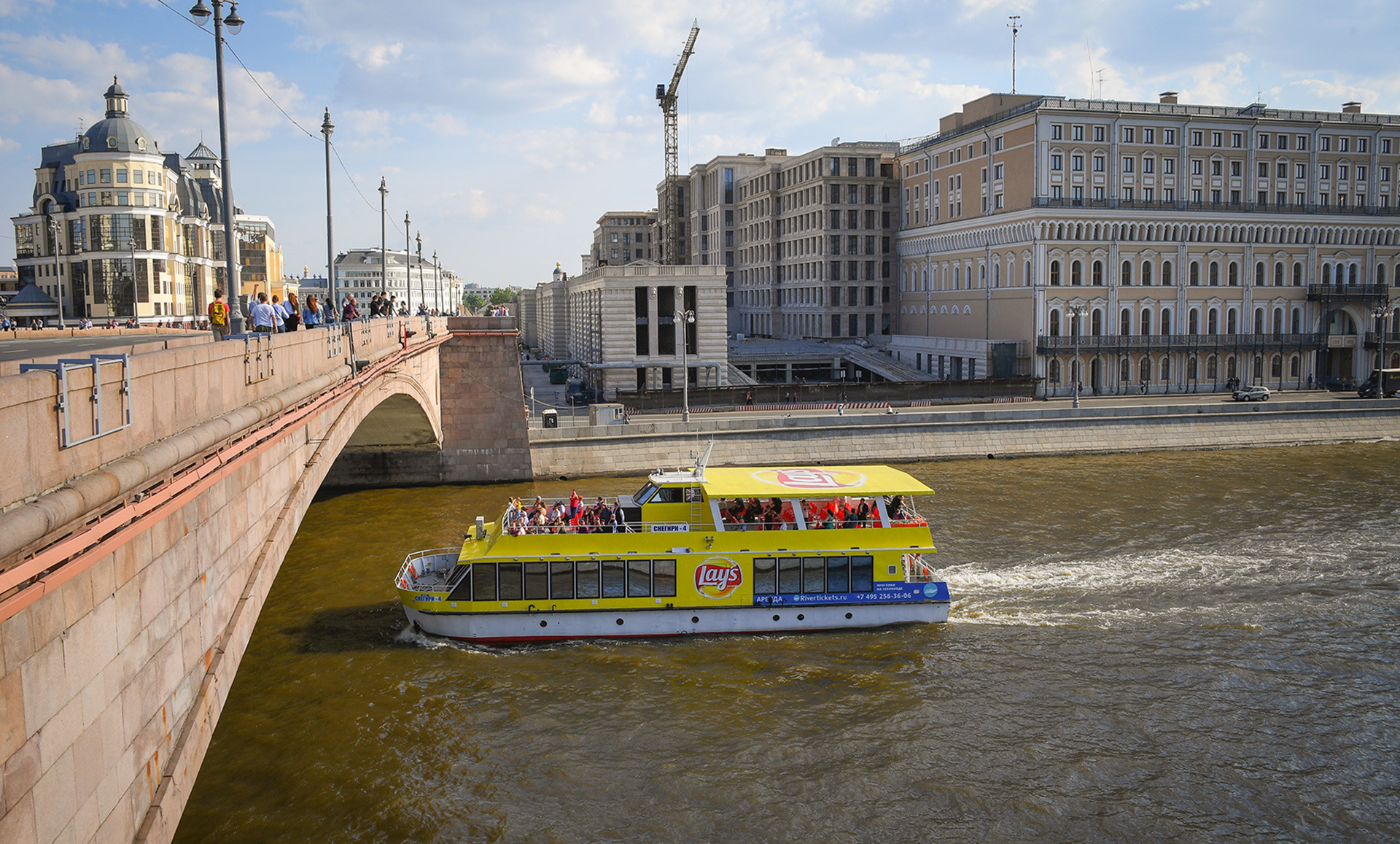
This option might leave a passenger disembarking partially deaf as the merciless Russian pop music blasts onboard. A free spirit, however, will find partying on such a vessel to be an unforgettable and authentic experience that’s almost a metaphor for life in modern Russia: too loud, and sometimes too welcoming. Tickets start at $13 (800 rubles) per person.
Bigger boats offer smoother sailing and tend to attract foreign visitors because of their distinct Soviet aura. Indeed, many of the older vessels must have seen better days. They are still afloat, however, and getting aboard is a unique ‘cultural’ experience. Sometimes the crew might offer lunch or dinner to passengers, but this option must be purchased with the ticket. Here is one such option offering dinner for $24 (1,490 rubles).
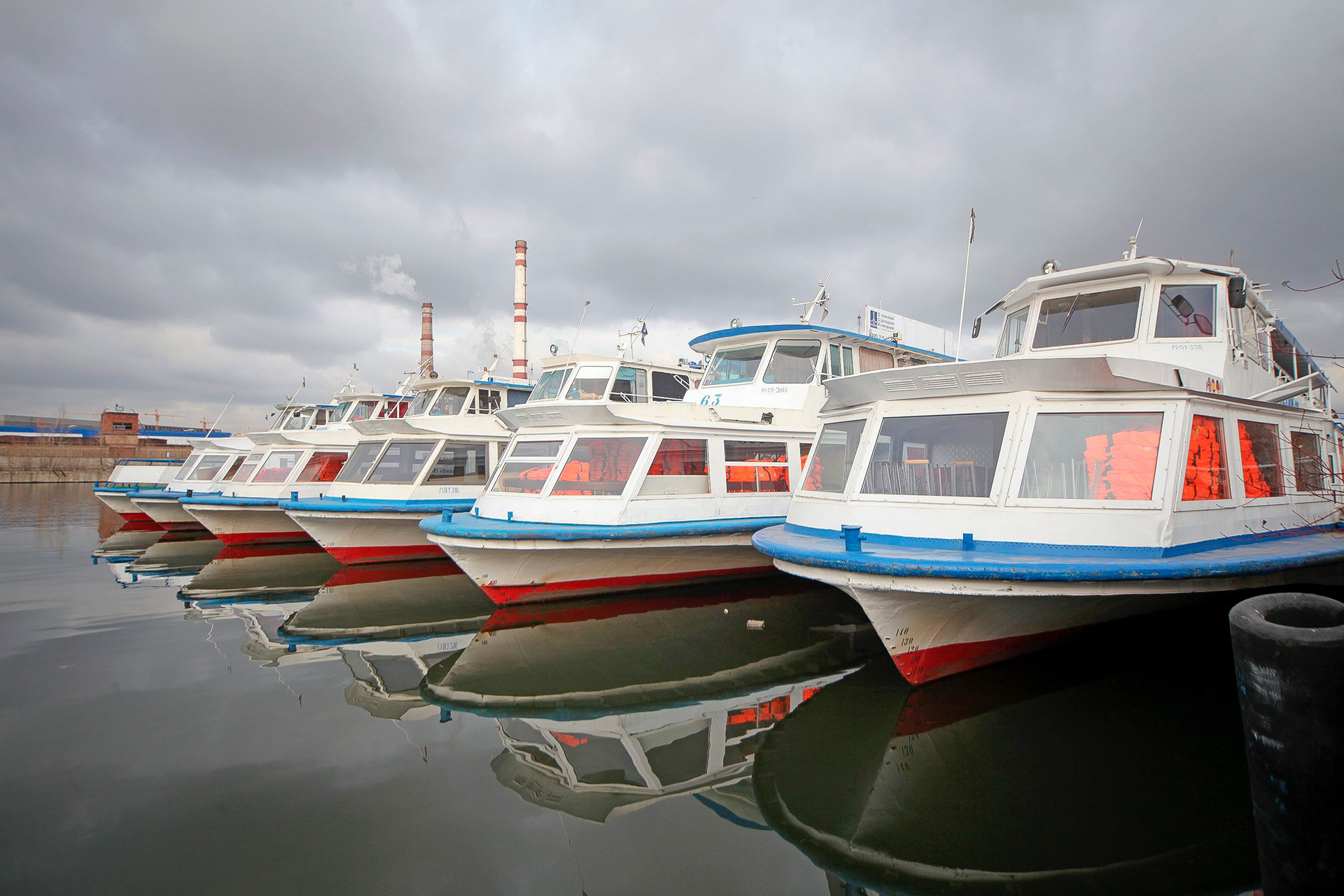
If you want to travel in style, consider Flotilla Radisson. These large, modern vessels are quite posh, with a cozy restaurant and an attentive crew at your service. Even though the selection of wines and food is modest, these vessels are still much better than other boats.
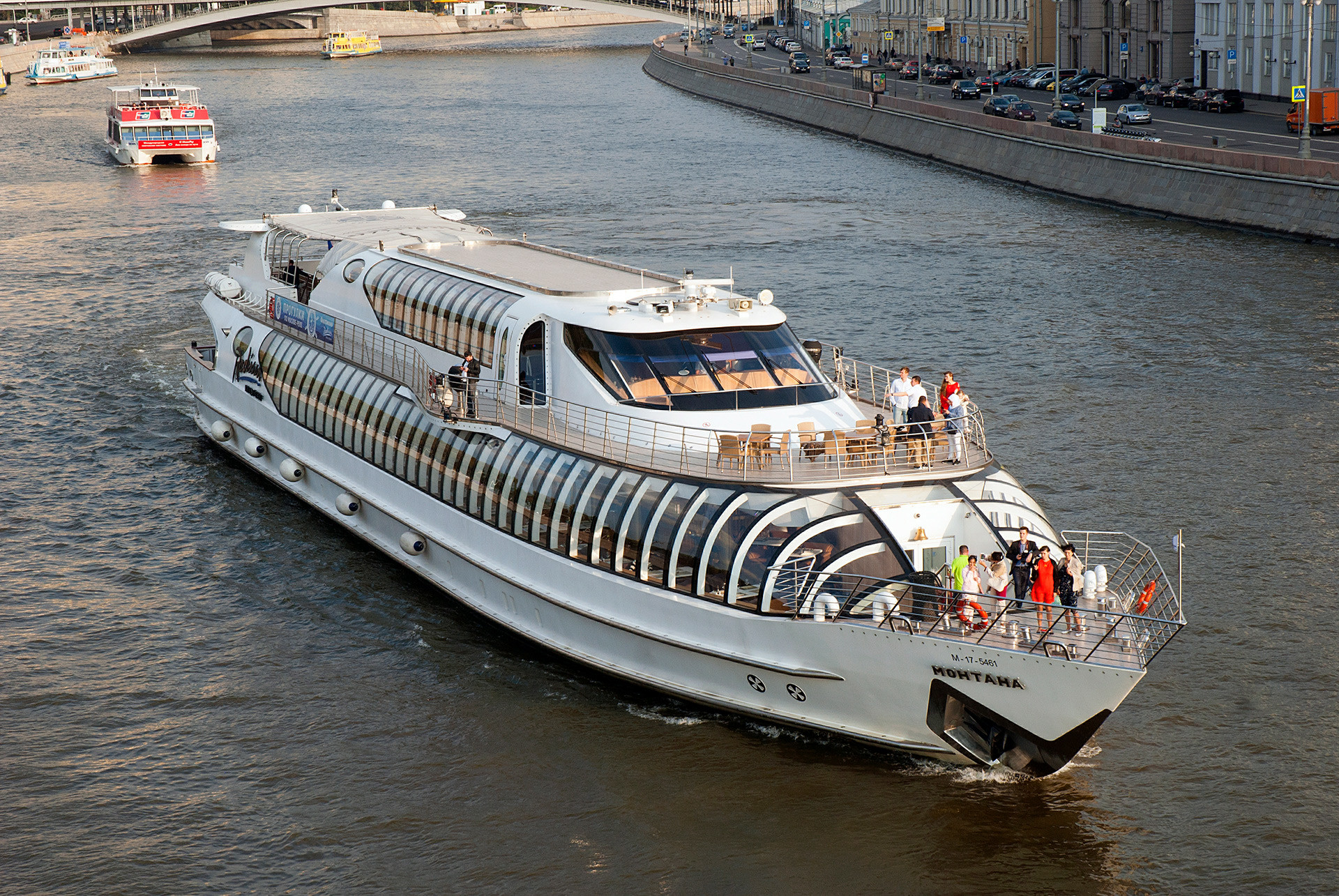
Surprisingly, the luxurious boats are priced rather modestly, and a single ticket goes for $17-$32 (1,100-2,000 rubles); also expect a reasonable restaurant bill on top.
How to buy tickets?
Women holding photos of ships promise huge discounts to “the young and beautiful,” and give personal invitations for river tours. They sound and look nice, but there’s a small catch: their ticket prices are usually more than those purchased online.
“We bought tickets from street hawkers for 900 rubles each, only to later discover that the other passengers bought their tickets twice as cheap!” wrote (in Russian) a disappointed Rostislav on a travel company website.
Nevertheless, buying from street hawkers has one considerable advantage: they personally escort you to the vessel so that you don’t waste time looking for the boat on your own.

Prices start at $13 (800 rubles) for one ride, and for an additional $6.5 (400 rubles) you can purchase an unlimited number of tours on the same boat on any given day.
Flotilla Radisson has official ticket offices at Gorky Park and Hotel Ukraine, but they’re often sold out.
Buying online is an option that might save some cash. Websites such as this offer considerable discounts for tickets sold online. On a busy Friday night an online purchase might be the only chance to get a ticket on a Flotilla Radisson boat.
This website (in Russian) offers multiple options for short river cruises in and around the city center, including offbeat options such as ‘disco cruises’ and ‘children cruises.’ This other website sells tickets online, but doesn’t have an English version. The interface is intuitive, however.
Buying tickets online has its bad points, however. The most common is confusing which pier you should go to and missing your river tour.

“I once bought tickets online to save with the discount that the website offered,” said Igor Shvarkin from Moscow. “The pier was initially marked as ‘Park Kultury,’ but when I arrived it wasn’t easy to find my boat because there were too many there. My guests had to walk a considerable distance before I finally found the vessel that accepted my tickets purchased online,” said the man.
There are two main boarding piers in the city center: Hotel Ukraine and Park Kultury . Always take note of your particular berth when buying tickets online.
Where to sit onboard?
Even on a warm day, the headwind might be chilly for passengers on deck. Make sure you have warm clothes, or that the crew has blankets ready upon request.
The glass-encased hold makes the tour much more comfortable, but not at the expense of having an enjoyable experience.

Getting off the boat requires preparation as well. Ideally, you should be able to disembark on any pier along the way. In reality, passengers never know where the boat’s captain will make the next stop. Street hawkers often tell passengers in advance where they’ll be able to disembark. If you buy tickets online then you’ll have to research it yourself.
There’s a chance that the captain won’t make any stops at all and will take you back to where the tour began, which is the case with Flotilla Radisson. The safest option is to automatically expect that you’ll return to the pier where you started.
If using any of Russia Beyond's content, partly or in full, always provide an active hyperlink to the original material.
to our newsletter!
Get the week's best stories straight to your inbox
- What to do in Moscow City, if you’re not mega-rich
- Moscow after dusk: 10 places to drink, dance, and groove
- 5 things you must do in Moscow in 2018 between football matches (or without them)
- Sandwiched between Moscow and St. Petersburg: How to spend a perfect weekend in Tver
- 24 or 48 hours in Moscow: Where to go and what to do in 2019
This website uses cookies. Click here to find out more.

IMAGES
VIDEO
COMMENTS
U.S. Coast Guard Requirements for National OUPV or Master up to 100 Tons. A Captain's License is required to operate a commercial vessel or to take paying passengers out on your vessel. Understanding the Captain's License Requirements is important prior to taking a captain's license course. The prerequisites should be reviewed before ...
The overall cost of getting your captain's license to operate commercial vessels can be anywhere from $500 to $800 or more depending on the course you choose. These costs will include your exam expenses, license requirements and additional fees associated with your license application. 6.
The master captain's license requirements include that you are at least 19 years old and a U.S. citizen. How to become a boat captain 1. Captains license sea time requirements. To qualify for a USCG captain's license you must have a minimum of 360 days of sea service; of which 90 days must be in the last three years ("recency" clause ...
To be a Captain, one must be in good health and of reasonable physical ability. The Medical form ( CG-719K) is the most extensive form one will need to complete. It also requires the signature of a licensed physician. Unlike an FAA pilot's license, the physician need not be approved by the US Coast Guard.
The tabs below will help you in applying to become a Charter Boat Captain. The type of credential you receive is based upon your experience which includes the following: Total days of service; Waters served upon; Tonnage of the vessels; The checklists under each tab include the requirements to obtain that credential.
The USCG Captain's License is a prestigious credential that reflects a captain's knowledge, skills, and commitment to maritime safety. It requires theoretical knowledge, practical experience, and a strong understanding of navigational rules, vessel handling, emergency procedures, and other essential aspects of safe and responsible boat operation.
This skipper's license will qualify you to captain a sailboat at sea in local waters from sunrise to sunset. Local waters are defined as 15 nautical miles, or 25 miles, from your home port, given that they are no more than 15 nautical miles from an approved safe haven. Local Waters Skipper. Holding this license, you will be qualified to ...
Applicants must meet the U.S. Coast Guard (USCG) minimum age requirements to be eligible for a USCG Captain's license. Generally, the minimum age is 18 years for an OUPV (Operator of Uninspected Passenger Vessels) License and 19 years for higher-level licenses, such as the Master or Mate License. Verifying the specific age requirements for the ...
For all license types, the following requirements are mandatory. Submitting an application. Attain documentation of sea time experience. (letters, DDC-14, or sea service forms signed by owner/captain) Proof of vessel ownership (if you own the vessel) Obtain a physical within 12 months. Drug screening within 6 months.
Captain's License Application Checklist Video Coast Guard statistics indicate that most delays in the licensing process are due to mistakes and oversights in the preparation of the application paperwork. A USCG captain's license application package will vary depending on the license you're applying for, but the necessary requirements are covered in the video and the following paragraphs.
Learn about OUPV Six-Pack and Master 25/50/100 Ton captain's license requirements, including sea time, health checks, and USCG criteria. Find a Course; Register; Captains Courses; More. Contact; Staff; Blog; ... whether on your own boat or someone else's. Just make sure you have proof of boat ownership or a signed form from the boat owner if ...
The most common path to a yacht's wheelhouse is by rising through the ranks in the yachting industry, starting on deck and building sea time, gaining boat handling and geographical experience, and accruing licenses. But even after the golden ticket is earned — that 500GT or 3,000GT Master license — you'll find there is more to getting ...
The Master Captain's License is required to captain any USCG inspected vessel, or vessels carrying 7 or more paying passengers. Larger tour boats, finishing boats, sailboats, and water taxis with more than 6 paying passengers on board require a Master License. This license also allows you to captain uninspected vessels with fewer passengers.
The Six-pack Captain's License allows the holder to carry up to six paying passengers plus crew on uninspected vessels up to 100 gross tons, hence the term six-pack. These are usually recreational vessels that are normally engaged in charter fishing, scuba diving, or tour cruises. The 25, 50, or 100-Ton Master License allows the holder to ...
Our Top USCG Captain's Courses. OUPV/Six-Pack Captain's License - Online Course and Exam $595.00. 25/50 or 100-Ton Master Captain's License - Online Course and Exam $795.00. OUPV/Six-Pack Upgrade to 25/50 or 100-Ton Master Captain's License - Online Course and Exam $330.00. Assistance Towing Endorsement - Online Course and Exam $125.00.
OUPV License. This license is properly termed "Operator of Uninspected Passenger Vessels" ( OUPV) and is commonly referred to as the "6-pack" or "Charterboat Captain's License". The word "uninspected" means that the equipment required and the design of the boat are less regulated. "6-pack" refers to the 6 passenger ...
The Master's License is required if you're taking 7 or more paying passengers, and for USCG-inspected vessels. This license also qualifies you to captain uninspected vessels. To qualify for your Master's License, you'll need to complete the application form for Merchant Mariner Credentials (CG-719B form). And you will need a minimum of ...
A captain's license is necessary to safely and legally operate a yacht of any size. It is important to note that the captain's license is not the same as a recreational boating license, and it is important to understand the difference between the two. In conclusion, the minimum size of a yacht requiring a captain's license is 25 gross tons.
Prices start at $13 (800 rubles) for one ride, and for an additional $6.5 (400 rubles) you can purchase an unlimited number of tours on the same boat on any given day.
Fees are: Bicycle License (Lifetime): Form available at police department. Fee is $7.00. Licensing fees and requirements are listed on each application. Katie Short oversees licensing for the Moscow Police Department. If you have questions or need assistance with licenses, please contact her at the phone number on the right or at (208) 883-7054.
An OUPV license requirement is you need to be at least 18 years old. Be a U.S. citizen OR show lawful admittance to the United States for permanent residence. Have a minimum of 360 days boating experience. Ninety of those days must have occurred in the last three years. Pass a physical and a drug test. Hold a valid adult CPR and Basic First Aid ...
Many years of experience in training yacht captains and organizing yacht and adventure tours of any complexity. Individual and creative approach to all tasks. I love the sea and sails very much. And I want to bring love, goodness, and light into our world. | Learn more about Tatiana Kaverina's work experience, education, connections & more by visiting their profile on LinkedIn
Buy tickets. River Cruise aboard a River Palace Yacht from City-Expocentre (International Exhibition) HIT SALES. Daily, from April 27, 2024. Departure from the berth City-Expocentre (m. Vystavochnaya), mooring place "A". Cruise duration 3 hours. We invite you on a river cruise aboard a premium class panoramic yacht starting from the main Moscow ...